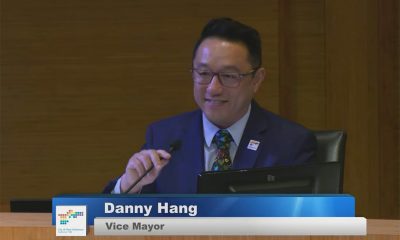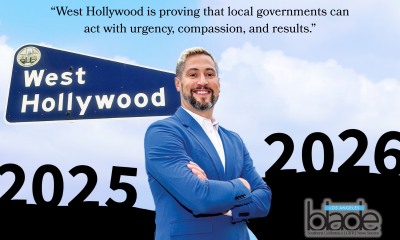West Hollywood
West Hollywood in brief- City government in action this week
Melrose Gathering Place Community Conversation; ‘Moving Image Media Art’ Exhibition Series; 2023 Arts Grant Program Grant Recipients + more
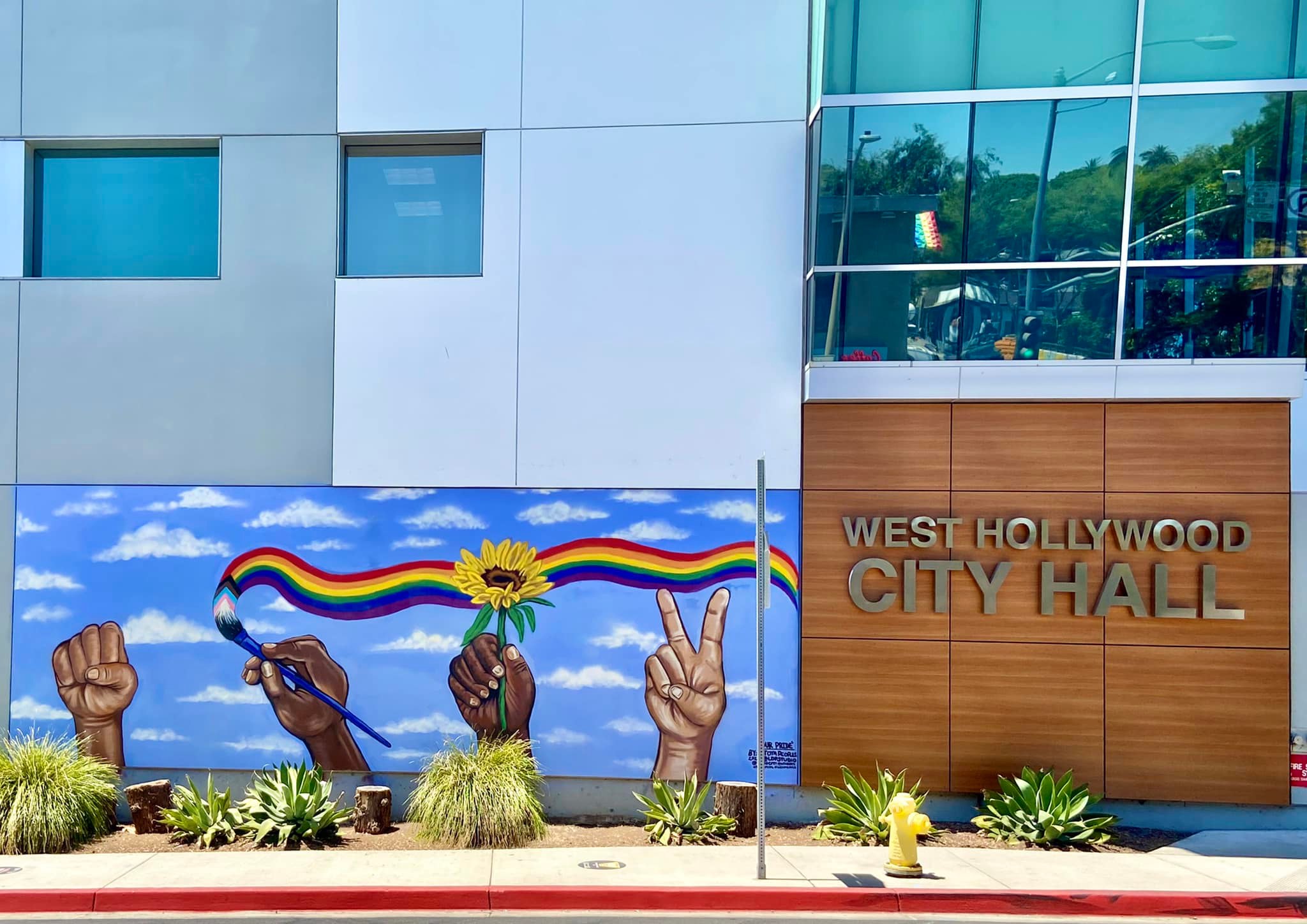
City of West Hollywood’s Human Rights Speakers Series Presents a Free Panel Discussion and Screening of ‘Queers Across Years’ on National Coming Out Day
WEST HOLLYWOOD – The City of West Hollywood’s Human Rights Speakers Series, in conjunction with QueerWise, will host a panel discussion and screening of the film Queers Across Years.
The event will take place on National Coming Out Day, Tuesday, October 11, 2022, at the City of West Hollywood’s Council Chambers/Public Meeting Room, located at 625 N. San Vicente Boulevard. Doors will open at 6:30 p.m. and opening remarks will take place at 7 p.m. followed by the film screening and a panel discussion that will begin at 8 p.m. The event is free, but seating is limited. RSVP is requested at https://HRSS-2022Oct11.eventbrite.com. Parking validation for the adjacent five-story West Hollywood Park structure, will be available at the event (parking is limited to availability).
Queers Across Years was developed through workshops over the course of a few weeks and features a group of younger (ages 18-25) and older (50+) LGBTQ community members sharing personal thoughts, ideas, and writings. The workshops were composed of pairs of younger and older participants with members of QueerWise, an LGBTQIA+ multigenerational writing collective and performance group based in Los Angeles. Members of QueerWise include published poets, fiction and non-fiction writers, and playwrights, singers, musicians, social activists, dancers, and actors, artists, and teachers. The stories written in those workshops have been developed into the material that’s woven into this inter-generational and inter-GENDER-ational video tapestry.
Featured panelists will include QueerWise Artistic Director/Founder Michael Kearns and Queers Across Years participants Gabrielle Néla and Gordon Blitz. The discussion will be moderated by Lucia Chappelle, Co-Producer of This Way Out international LGBTQ radio and Minister of Social Justice, FMCC.
The City of West Hollywood’s Human Rights Speakers Series brings together diverse communities to learn about and discuss global, national, and local human rights issues in a supportive environment. The series reflects the City’s commitment to human rights and core value of Respect and Support for People.
For additional information about the Human Rights Speakers Series, please visit www.weho.org/hrss.
For more information, please contact Joy Tribble, the City of West Hollywood’s Arts Specialist, at (323) 848-6360 or at [email protected].
For people who are Deaf or hard of hearing, please call TTY (323) 848-6496.
City of West Hollywood Celebrates Disabilities Awareness Month in October
The City of West Hollywood and its Disabilities Advisory Board will recognize October as Disabilities Awareness Month. This year marks the 32nd anniversary of the Americans with Disabilities Act (ADA). The ADA is landmark civil rights legislation that works to increase access and opportunity for people with disabilities across society, including in the workplace.
Throughout the month of October, the City of West Hollywood will commemorate Disabilities Awareness Month with the installation of 43 street pole banners along Santa Monica Boulevard, which recognize past recipients of the City’s Disability Service Awards in the individual and nonprofit organization categories.
The City will host two events to raise awareness and shine recognition on people and organizations that positively impact the lives of people with disabilities in the community.
On Thursday, October 20, 2022, from 10 a.m. to 1 p.m., the City of West Hollywood, in partnership with Cedars-Sinai, will host a free Outdoor Flu and COVID-19 Vaccination Clinic in the Great Hall Courtyard at Plummer Park, located at 7377 Santa Monica Boulevard. COVID-19 transmission is still a concern in Los Angeles County. People who are unvaccinated are at higher risk for serious illness and death. Additionally, the flu season presents a challenge to public health because symptoms of influenza can be very serious. Services offered at this event are: flu vaccines for ages 6 months and older (children 6 months to 8 years of age receiving their first flu vaccine may be registered for their required second dose at https://myturn.ca.gov/); COVID-19 Pfizer vaccines: first, second, and Bivalent Booster doses for ages 12 years and older; Pfizer third dose for immunocompromised individuals 12 years and older. This event will also feature free blood pressure checks and a voter registration booth.
Walk-ins for both the flu and COVID- 19 vaccines will be accepted, however pre-registration is recommended for the COVID-19 vaccines. Go to: https://myturn.ca.gov/ and use zip code “90046” to locate Cedars-Sinai Pop-up – West Hollywood Plummer Park (10/20/22 Only). A mask must be worn to attend the event. Children under 18 years old must be accompanied by a parent or guardian. Participants should bring a form of identification and existing COVID-19 vaccination card. Please stay home if you are not feeling well. For more information or if you have questions about the Outdoor Flu and COVID-19 Vaccination Clinic, please call Cedars-Sinai at (310) 423-4625.
On Wednesday, October 26, 2022 at 6 p.m. the City of West Hollywood will host the 24th Annual Disability Service Awards at a special televised meeting of the Disabilities Advisory Board. The virtual meeting will take place on the Zoom platform at https://us06web.zoom.us/j/81840112413. The Disability Service Awards will also be broadcast live on WeHoTV on Spectrum Cable Channel 10 in West Hollywood; will be livestreamed on the City’s WeHoTV YouTube channel at www.youtube.com/wehotv and on the City’s website at www.weho.org/wehotv; and will be livestreamed via the AppleTV, Amazon FireTV, AndroidTV, and Roku platforms by searching for “WeHoTV.”
This year’s Disability Service Awards honorees are:
- Lovedy Brydon Differently Abled Individual Award: Dena Saur Bowman – (posthumously);
- Business Award: Pavilions West Hollywood;
- Media Award: Paulo Murillo; and
- Nonprofit Award: West Hollywood Comprehensive Service Center/Jewish Family Service LA.
The City of West Hollywood’s Disabilities Advisory Board was created in 1995 and is comprised of nine members. The Disabilities Advisory Board addresses issues affecting people with disabilities, including ADA compliance, transportation, housing, access to City government and services for people with disabilities, and makes recommendations to the West Hollywood City Council relative to the adoption of programs, policies, or ordinances of benefit to the constituency.
For more information, please call the City of West Hollywood’s Social Services Division at (323) 848-6510.
For people who are Deaf or hard of hearing please contact [email protected] for more information and to request accommodation. Individuals may also use TTY (323) 848-6496.
City of West Hollywood to Host Community Conversation for Melrose Gathering Place on Thursday, September 29 at 6 p.m.
The City of West Hollywood invites community members to attend a Melrose Gathering Place Community Conversation on Thursday, September 29, 2022, from 6 p.m. to 7 p.m. on the Respite Deck of the West Hollywood Park Aquatic and Recreation Center (Floor 5 at the top of the grand staircase), located at 8750 El Tovar Place, next to the West Hollywood Library.
The space at the corner of Melrose Avenue and Norwich Drive is currently sidewalk and diagonal parking. It will be transformed into approximately 7,200 square feet of park-like space with landscaping, trees, seating, public art, and other amenities. The previously proposed design for this space is now being reimagined, and the City is excited to restart the effort with a new design team, artist, and with renewed input from the local community. The Community Conversation will be an in-person opportunity for neighbors, local business owners, and residents’ associations to meet the newly commissioned design team early in the process and participate in reimagining the space.
The Melrose Gathering Place project was established as part of the Design District Streetscape Master Plan, which was unanimously approved by City Council in 2014. The Design District Streetscape & Undergrounding Project is now in its second phase of construction. The Master Plan was designed to improve the overall aesthetics and mobility of the commercial district known as West Hollywood Design District, with the goal of strengthening the economic vitality of the district. Key features of the project include pedestrian and bicycle safety improvements; new pavement and sidewalks; distinctive trees and landscaping; upgraded street furniture and streetlights; smart city infrastructure installation; utility undergrounding work; and the creation of new public gathering spaces, such as the Melrose Gathering Place, with integrated public art.
For additional information, please contact Michael Barker, the City of West Hollywood Project Architect in the City’s Urban Design and Architecture Studio, at (323) 848-6483 or at [email protected].
For people who are Deaf or hard of hearing please call TTY (323) 848-6496.
City Council Adopts Positions of Support for Four State Ballot Initiatives that will Appear on the Ballot for the Nov. 8 General Election
The City Council of the City of West Hollywood, at its regular meeting on Monday, September 19, 2022, adopted positions of support for four of the seven state ballot initiatives that will appear on the ballot for the November 8, 2022 General Election. The City Council is adopting Resolutions in support of: Proposition 1; Proposition 28; Proposition 30; and Proposition 31. These four Propositions are of particular concern and interest to the City of West Hollywood.
A summary of City Council positions on state ballot initiatives is as follows:
SUPPORT. Proposition 1, if approved by voters, would amend the California Constitution to prohibit the state from enacting legislation or regulations that would deny or interfere with an individual’s reproductive freedom in their most intimate decisions, which includes their fundamental right to choose to have an abortion and their fundamental right to choose or refuse contraceptives. The City of West Hollywood is a self-declared pro-choice city and has been a strong supporter of individuals’ right to choose. Proposition 1 is consistent with the City’s core values, the 2021-2022 legislative priorities, and previously adopted policies.
SUPPORT. Proposition 28 is intended to supplement current school funding that is governed by Proposition 98 of 1988, which requires the state to set aside funds for K-12 education from the state’s General Fund and property taxes. This proposition will commit an additional 1% of GF funds for arts and music education in public and charter schools. The City of West Hollywood has been a longstanding supporter of arts and culture in our community and is dedicated to providing accessible arts programs for residents and visitors. Providing additional funding to arts and music education in public and charter schools is important to ensuring equity and accessibility for all, including economically disadvantaged schools and students.
SUPPORT. Proposition 30 would increase the tax on personal incomes above $2 million by 1.75% and dedicate the revenue to zero-emission vehicle subsidies; zero-emission vehicle infrastructure, such as electric vehicle charging stations; and wildfire suppression and prevention programs. The City of West Hollywood has adopted sustainability policies consistent with the City’s commitment to protecting the environment and reducing the emissions of greenhouse gases (GHGs). Proposition 30 will increase revenues and allocate funding for the expansion of programs to facilitate a reduction of GHGs in California and West Hollywood. This not only will assist the state’s efforts to combat climate change, it will also result in the reduction of air contaminants, which for many people living with respiratory diseases could mean the ability to breathe easier and have a better quality of life.
SUPPORT. Proposition 31, The proponents of this ballot initiative, manufacturers of tobacco products, including tobacco flavored products, are seeking to repeal the 2020 state law (SB 793, Chapter 34, Statutes of 2020) that banned the retail sales of flavored tobacco products in California. SB 793 was introduced by Senator Jerry Hill, D-San Mateo and was approved by the Legislature and signed into law by Governor Gavin Newsom. As the opponents were able to qualify the referendum challenging SB 793, the law did not go into effect. Thus, the voters will decide whether or not the ban on the sales of flavored tobacco products should stay or be repealed. A Yes vote on Proposition 31 is a vote to uphold the law and keep the ban on the sale of flavored tobacco products. In 2021, the City of West Hollywood adopted an ordinance to ban the sale of flavored tobacco products, including cigarettes, cigars, chewing tobacco, pipe tobacco, and electronic smoking devices. Support for Proposition 31 is in line with the City’s adopted policies.
California voters, in the upcoming November 8, 2022 General Election, will be asked to vote upon seven statewide initiatives. Voters in the City of West Hollywood will vote, as well, to fill three (3) West Hollywood City Council seats for four-year terms. Details about the General Municipal Election are available on the City’s website at www.weho.org/elections. The City encourages community members to check voter registration status at www.lavote.gov/vrstatus.
For more information about the City of West Hollywood’s legislative affairs efforts, please visit www.weho.org/legislative or contact Hernán Molina, the City of West Hollywood’s Governmental Affairs Liaison, at (323) 848-6364 or [email protected].
For people who are Deaf or hard of hearing, please call TTY (323) 848-6496.
City of West Hollywood is Implementing Block by Block Program Expansion with 30 Additional Security Ambassadors
The City of West Hollywood is pleased to announce that it is in the process of expanding its Block by Block program with 30 additional Security Ambassadors. The Block by Block program has hired and trained 20 new Security Ambassadors, one Team Lead, and one Operations Supervisor, as reported at the West Hollywood City Council meeting on Monday, September 19, 2022. The Block by Block program is on-track to be fully staffed by October 1, 2022, with a total of approximately 85 Security Ambassadors.
The City Council of the City of West Hollywood unanimously approved a Block by Block Security Ambassadors program update at its meeting on Monday, September 19, 2022. This follows City Council approval on Monday, June 27, 2022, of the City’s FY 2022-23 & 2023-24 two-year operating budget and capital work plan, which directed an increase to the number of Block by Block Security Ambassadors by 30 positions. Additional direction regarding the expansion was provided by the City Council on Monday, August 1, 2022 when it approved the related amendment to the Block by Block agreement for services.
“The City’s Block by Block Security Ambassadors program will continue to provide bicycle and foot patrols throughout the City’s commercial districts,” said City of West Hollywood City Manager David Wilson. “The program is adding dedicated foot patrols in residential neighborhoods citywide and is staffing new kiosks in selected locations. Block by Block Security Ambassadors work in close alignment with Deputies from our Sheriff’s Station, as well as our City’s Code Enforcement and Homeless Initiative teams, among others. The collaboration positively impacts quality of life in West Hollywood.”
Block by Block Security Ambassadors work in collaboration with the West Hollywood Sheriff’s Station to provide supplemental safety services and they get to know West Hollywood’s neighborhoods to assist in providing an extra level of hospitality to businesses, residents, and visitors. Expansion of the program aims to provide an additional public presence to proactively reduce crime.
Block by Block Security Ambassadors are highly focused on safety and hospitality in West Hollywood with specific emphasis on:
- Maintaining uniformed foot and bicycle patrols throughout the City’s business districts and residential neighborhoods;
- Providing in-person responses 24/7 to non-violent calls for service;
- Conducting safety escorts for residents, businesses, and visitors; and
- Offering helpful guidance to community members and visitors about City information, directions, parking, and more.
In consultation with the West Hollywood Sheriff’s Station, the City of West Hollywood will implement four new Block by Block Security Ambassador kiosks by October 1, 2022, at or near the following intersections: (1) Santa Monica Boulevard at N. Robertson Boulevard; (2) Santa Monica Boulevard at Westmount Drive; (3) Sunset Boulevard and Sunset Plaza Drive; and (4) Melrose Avenue and Westmount Drive.
During the next several weeks, the City will be sharing additional information about the Block by Block Security Ambassadors program with outreach to residents and businesses.
About | Block by Block Security Ambassadors Program – The City of West Hollywood partners with Block by Block on its Security Ambassadors program, which has a direct positive impact on safety and neighborhood livability.
First established as a City program in 2013, West Hollywood Block by Block Security Ambassadors provide a highly visible uniformed presence at the street level and leverage the effectiveness of local law enforcement by working in collaboration with personnel from the West Hollywood Sheriff’s Station.
In addition to supplemental safety services, Block by Block Security Ambassadors get to know West Hollywood’s neighborhoods and assist in providing an extra level of hospitality to businesses, residents, and visitors and help to address and respond to quality of life concerns in the community.
Security Ambassadors receive trainings on topics such as active shooters, cultural diversity and sensitivity, administration of Narcan to treat narcotic overdose, mental health first aid, sexual harassment, emergency/disaster preparedness, and more.
The Block by Block Security Ambassador Hotline provides access to free, 24/7 support by phone or text at (323) 821-8604; a new toll-free number will be introduced in the coming weeks. For additional information, please visit www.weho.org/bbb.
About | Sheriff’s, Fire, Code, and Emergencies – The City of West Hollywood contracts with the Los Angeles County Sheriff’s Department for law enforcement and the Los Angeles County Fire Department for fire protection. The City’s Neighborhood & Business Safety Division oversees code enforcement.
For additional information, please visit www.weho.org/publicsafety. For anyone with public safety concerns, please reach out to the Sheriff’s Station 24/7 at (310) 855-8850. In an emergency, always call 911.
For more information, please contact City of West Hollywood Director of Community Safety Danny Rivas at (323) 848-6424 or [email protected].
For people who are Deaf or hard of hearing, please call TTY (323) 848-6496.
City of West Hollywood Announces 2023 Arts Grant Program Grant Recipients
The City of West Hollywood
has announced the recipients for the 2023-2024 Arts Grant Program, totaling $211,000 for twenty new grantees and sixteen multi-year grantees who are all Los Angeles County based non-profit arts organizations and artists.
The City of West Hollywood, through its Arts and Cultural Affairs Commission, has maintained an Arts Grant Program since 1997. The Program provides funding support, through the Arts Grant Program, to eligible artists and nonprofit arts organizations for the production, performance or presentation of arts projects that take place in the City of West Hollywood and that serve the West Hollywood community.
The City received a total of 49 applications, and $315,604 in funding requests, from artists and non-profit arts organizations proposing art projects to take place in the City of West Hollywood in 2023. These applications represent a variety of arts disciplines and a wide array of excellent project proposals. Following peer panel review, Performing Arts and Cultural Affairs Subcommittee, and Arts and Cultural Affairs Commission funding recommendations, the West Hollywood City Council approved the below recommendations on September 19, 2022.
The Arts Project Grant category supports the production, performance or presentation of art projects that take place in the City of West Hollywood and that serve the West Hollywood community. It is a two-year grant. The following non-profit arts organizations are grant recipients for 2023-2024: Brockus Project Dance Company, Grand Performances, International Eye Los Angeles, Mashup Contemporary Dance Company, Oasis Players, Pieter, Pride Poets, and Saturday Night Bath Concert Fund.
The Transgender Arts Initiative Grant category supports and enhances the presentation of artworks in West Hollywood by transgender artists, artist collectives or groups, and non-profit organizations with a history of supporting transgender artists. First initiated in 2013, this grant category is the first to support artwork by, for, and about the Transgender community. Last year, the City received 4 eligible applications; this year 16 applications were received. The 2023 grant recipients in this category are: Celebration Theatre, Cleveland Wright Lopez, Drian Juarez, Lauren Woods, and Marval A Rechsteiner.
The Community Arts Grant intends to support non-profit arts organizations with a history of supporting BIPOC and/or female artists and audiences. The grant recipients in this category include: Age Inclusion in Media, The Alliance of Los Angeles Playwrights, Chicana Directors Initiative, and East West Players, Inc.
The WeHo Artist Grant aims to nurture and support the long-term development of an artist’s ideas by providing funds that increase the capacity for artists to realize work, advance the conditions of creation, and navigate the complexities of both making art and making a career. The West Hollywood resident artist grant recipients for 2023 are: Ignacio Darnaude, Sharmin Rahman, and Steven Reigns.
In addition to these new grant awardees, the City continues to support its multi-year grantees in their second or third year of programming. The multi-year grantees are: Gay Men’s Chorus of Los Angeles, Greenway Arts Alliance, Helix Collective, Kontrapunktus Neo-Baroque Chamber Orchestra, LAXART, Look What She Did, MAK Center for Art and Architecture, ONE Archives, Rogue Artists Ensemble, Suarez Dance Theater, The New Arts Foundation, War Toys, Prism Comics, No Easy Props, Arts Bridging the Gap, and Wordsville.
The Arts Grant Program is considered a central component to arts and cultural programs and services provided by the City of West Hollywood. Arts grants offer subsidized funding to artists and organizations so that ticket prices are free or more affordable for the public. In other cases, art grants provide opportunities for artistic development, allowing space for stimulating creativity and deepening cross-cultural understanding, while contributing to the quality-of-life residents and visitors can enjoy in West Hollywood. The funding provided through the vehicle of a grant ensures a fair and equitable review process and results in the reflection of the diversity contained among our residents.
Join the City of West Hollywood’s Arts Division staff for the WeHo Artists Roundtable, on Thursday, September 22, 2022 at the West Hollywood Library Community Meeting Room. RSVP at https://bit.ly/WeHoArtistsRoundtable. The WeHo Artists Roundtable is a gathering of arts organizations, individual artists, arts and creative businesses, and community members committed to West Hollywood’s artistic and cultural vitality. This Roundtable will offer a presentation by Greg Victoroff, Esq. centering the topic of copyright issues for art makers.
The City of West Hollywood is committed to providing accessible arts programming for residents and visitors. The City delivers a broad array of arts programs through its Arts Division including: Art on the Outside (temporary public art), Arts Grants for Artists and Nonprofit Arts Organizations, City Poet Laureate Program, Free Theatre in the Parks, Human Rights Speakers Series, Library Exhibits and Programming, Summer Sounds / Winter Sounds, Urban Art Program (permanent public art), WeHo Reads, and the WeHo Pride LGBTQ Arts Festival.
For more information about the City of West Hollywood’s Arts Grant Program, please visit www.weho.org/arts or contact Eva Angeloff, Grants Coordinator in the City of West Hollywood’s Arts Division, at (323) 848-6354 or at [email protected].
City of West Hollywood Presents 59, a Film from Artist Leslie Foster as Part of the ‘Moving Image Media Art’ Exhibition Series
The City of West Hollywood announces the next exhibition in the Moving Image Media Art program (MIMA) and the debut of 59, a film from artist Leslie Foster. 59 will air at the top of every hour on the digital billboard at 8743 Sunset Boulevard (Invisible Frame) on the Sunset Strip from Saturday, October 1, 2022, through Tuesday, January 31, 2023.
MIMA is an ongoing exhibition series of moving image media artworks on multiple digital billboards at various locations along Sunset Boulevard. The goals of the MIMA Program are to foster cultural equity, expand accessibility, inspire communication, create public space, and enhance the human experience of the Sunset Strip. Among the most resonant and applicable themes MIMA seeks to represent is the concept of invisibility in relation to communities rendered unseen by inequity.
H. Leslie Foster II is an experimental filmmaker whose work shines a bright light on the historically silenced. 59 is comprised of 11 films, that were shot in 11 months in May 2017, with 11 different collaborators. 59 represents the completion of a yearlong art residency with the nonprofit art collective Level Ground, where he now serves as the Director of Art Residency. The work recognizes struggle as a universally shared experience, which provocatively describes our differences and similarities all at once.
Foster is an artist based in Los Angeles whose work explores Black and queer futurism through a lens of dream logic. His love for storytelling is inspired by a childhood spent in Indonesia, the Philippines, Thailand, and Berrien Springs, Michigan. Since 2006 he has shot films and music videos in Serbia, gone undercover in Jamaica to shoot a documentary about violent homophobia, attended Burning Man 8 times, and has been exhibited internationally. He is also a founding member of the collective Museum Adjacent, which was formed by members of the 2019 Torrance Art Museum FORUM residency cohort.
The Moving Image Media Art program (MIMA) is a City of West Hollywood exhibition series administered by the City’s Arts Division, as part of its Art on the Outside Program, and is presented within the Sunset Arts and Advertising Program. MIMA offers artists the opportunity, and the funding, to create immediate, remarkable, and ambitious works of art that engage with the unique visual landscape of the world-famous Sunset Strip, and experiment with the state-of-the-art technology of high-definition digital signage.
MIMA enables artists to occupy, contest, and play with the boundaries and uses of public space and manifest moments of connection and awe. Leslie Foster was selected for exhibition from the MIMA Prequalified List, a rolling, open-call for moving image media artists, curators, and nonprofit arts organizations, with applications reviewed bi-annually by the City of West Hollywood’s Arts and Cultural Affairs Commission, in November and May. The MIMA Prequalified List includes a diverse list of artists of all career levels; from emerging to internationally recognized. https://www.weho.org/community/arts-and-culture/visual-arts/mima
The City of West Hollywood’s Arts Division delivers a broad array of arts programs including Art on the Outside (temporary public art), Arts Grants, City Poet Laureate, Free Theatre in the Parks, Human Rights Speaker Series, Library Exhibits, WeHo Pride LGBTQ Arts Festival, Summer Sounds + Winter Sounds, Urban Art (permanent public art), and WeHo Reads. For more information about City of West Hollywood arts programming, please visit www.weho.org/arts.
For more information about MIMA please contact Rebecca Ehemann, City of West Hollywood Arts Manager, at (323) 848-6846 or at [email protected].
For people who are Deaf or hard of hearing, please call TTY (323) 848-6496.
City of West Hollywood Presents THREE OVERLOOKED WOMEN FILMMAKERS from Artist Sabrina Gshwandtner As Part of the ‘Moving Image Media Art’ Exhibition Series
The City of West Hollywood announces the debut of the next exhibition in the Moving Image Media Art program (MIMA) program and the worldwide debut of THREE OVERLOOKED WOMEN FILMMAKERS, a collection of three short films, from artist Sabrina Gshwandtner. The THREE OVERLOOKED WOMEN FILMMAKERS Film I will air at the top of every hour, followed by Film II and Film III at 20 and 40 minutes past each hour on the Streamlined Arbor billboard, located at 9157 Sunset Boulevard on the Sunset Strip from Saturday, October 1, 2022, through Tuesday, January 31, 2023.
MIMA is an ongoing exhibition series of moving image media artworks on multiple digital billboards at various locations along Sunset Boulevard. The goals of the MIMA Program are to foster cultural equity, expand accessibility, inspire communication, create public space, and enhance the human experience of the Sunset Strip. Among the most resonant and applicable themes MIMA seeks to represent is the concept of restoration in relation to communities rendered unseen by inequity.
Sabrina Gschwandtner has examined the historical erasure of work done by women in film throughout her career. By creating kaleidoscopic moving image “quilts” of meticulously manipulated historic footage, Gshwandtner’s work performs an act of historical remediation, recovering the names and works of under-recognized women filmmakers of the silent era, where intricate sewing skills translated their handcraft perfectly to the rigorous demands of weaving together an engaging movie. Gshwandtner’s expressive films mend unconscionable gaps in Hollywood’s past, but they also exist as beautiful, mesmerizing moments on their own, flickering at the western edge of the city, confidently guiding us home.
Sabrina Gschwandtner’s artwork, comprised of film, video, photography, and textiles, was recently featured at The Sum of the Parts, Craft Contemporary, Los Angeles, and at a solo exhibition at Shoshana Wayne Gallery in Los Angeles. Gschwandtner’s artwork has been exhibited internationally at museums including the Smithsonian American Art Museum; the Victoria and Albert Museum; the Museum of Arts and Design, Los Angeles County Museum of Art (LACMA), and Crystal Bridges Museum of American Art, among many others. Her work is held in the permanent collections of LACMA, the Smithsonian American Art Museum, Museum of Fine Arts, Boston, the RISD Museum, the Mint Museum, the Philbrook Museum, the Alfond Collection of Contemporary Art at Rollins Collect, and the Carl and Marilyn Thoma Art Foundation, among other public and private collections worldwide. Gschwandtner was born in Washington D.C., received her MFA from Bard College, and received a 2019 City of Los Angeles (COLA) Individual Artist Fellowship.
The Moving Image Media Art program (MIMA) is a City of West Hollywood exhibition series administered by the City’s Arts Division, as part of its Art on the Outside Program, and is presented within the Sunset Arts and Advertising Program. MIMA offers artists the opportunity, and the funding, to create immediate, remarkable, and ambitious works of art that engage with the unique visual landscape of the world-famous Sunset Strip, and experiment with the state-of-the-art technology of high-definition digital signage.
MIMA enables artists to occupy, contest, and play with the boundaries and uses of public space and manifest moments of connection and awe. Sabrina Gshwandtner was selected for exhibition from the MIMA Prequalified List, a rolling, open-call for moving image media artists, curators, and nonprofit arts organizations, with applications reviewed bi-annually by the City of West Hollywood’s Arts and Cultural Affairs Commission, in November and May. The MIMA Prequalified List includes a diverse list of artists of all career levels; from emerging to internationally recognized. https://www.weho.org/community/arts-and-culture/visual-arts/mima
The City of West Hollywood’s Arts Division delivers a broad array of arts programs including Art on the Outside (temporary public art), Arts Grants, City Poet Laureate, Free Theatre in the Parks, Human Rights Speaker Series, Library Exhibits, WeHo Pride LGBTQ Arts Festival, Summer Sounds + Winter Sounds, Urban Art (permanent public art), and WeHo Reads. For more information about City of West Hollywood arts programming, please visit www.weho.org/arts.
For more information about MIMA please contact Rebecca Ehemann, City of West Hollywood Arts Manager, at (323) 848-6846 or at [email protected].
For people who are Deaf or hard of hearing, please call TTY (323) 848-6496.
West Hollywood
John Heilman and Danny Hang will serve as WeHo’s new Mayor and Vice Mayor
Last night, community members and local officials gathered to celebrate new leadership and bid a warm farewell to outgoing Mayor Chelsea Byers.
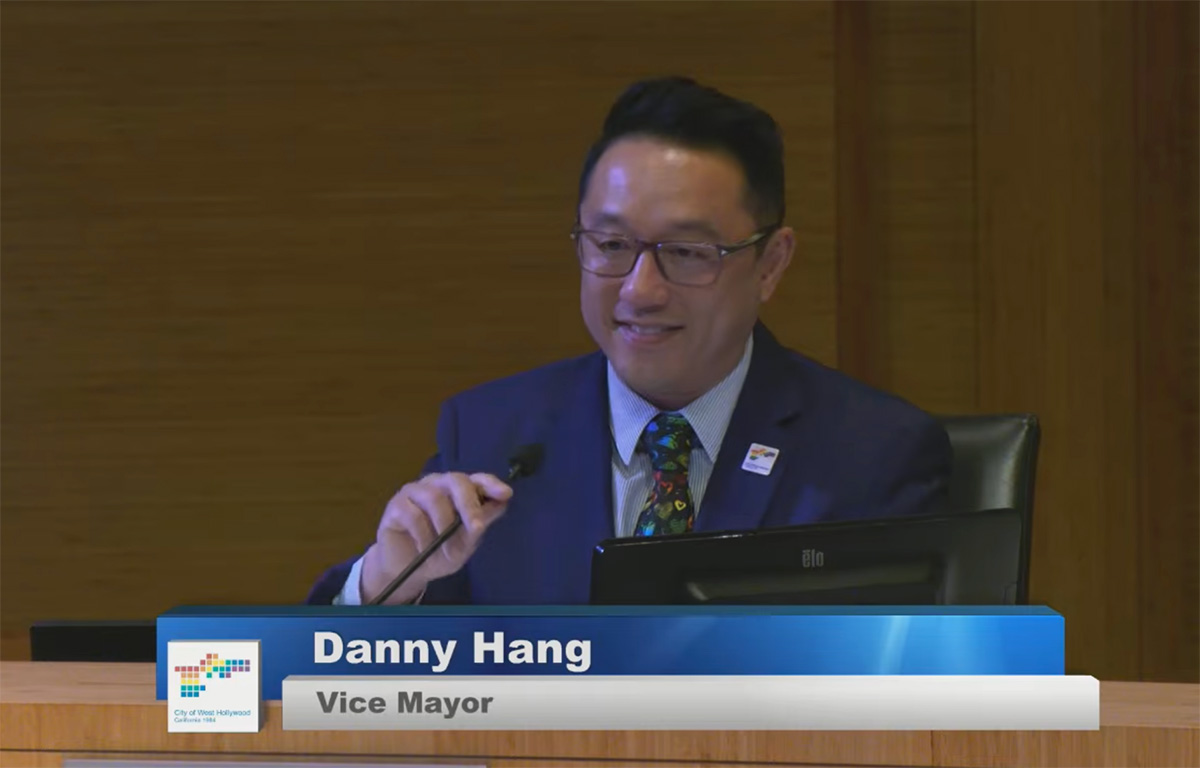
On Jan. 12, West Hollywood residents packed the City’s chambers at 6 p.m. to honor the work of outgoing mayor Chelsea Byers and witness councilmembers John Heilman and Danny Hang take their oath of office as they respectively assume their roles as Mayor and Vice Mayor for 2026.
In her last address as Mayor, Byers spoke about the optimism she holds onto in these unsteady times. To her, West Hollywood is a unique City: one that has become a model for what can be possible in an unjust society. “It’s us against the world. It’s West Hollywood on the stage,” Byers said. “It’s our story to tell, and every single person here contributes in such great ways to that.”
Byers was awarded a plaque on behalf of West Hollywood council members for her outspoken commitment to LGBTQ+ rights, economic justice, housing affordability, and policies that emphasize equity and inclusivity in West Hollywood.
Her leadership remains a bright, guiding light for Mayor Heilman, who was part of West Hollywood’s first city council after the independent city was incorporated in 1984. The spirit of that initial group remains today: queer, progressive, and led for and by the people. Yesterday’s ceremony marked the beginning of Heilman’s ninth time serving as Mayor, as well as his last year on the city council due to term limits.
Now, he leads side-by-side with a self-proclaimed “newcomer,” Danny Hang.
From the 626 to the Westside: Hang’s roots and journey
Hang was born in Monterey Park, a city in the San Gabriel Valley. The region is known for its diverse communities and AAPI-rich culture and history, and Hang recounted to the Blade the deep sense of belonging and comfort he felt growing up there. “I could go to a restaurant, speak Vietnamese or Chinese,” Hang said. “There are people who look like me out there. It is my home away from home.”
After college, he worked at the Social Security Administration, where he helped retirees, disabled people, and those impacted by loss file for Supplemental Security Income (SSI). The work was fulfilling, and he loved feeling that he had a tangible impact on others’ lives: that he could help residents grappling with difficult bureaucratic processes.
This passion grabbed the attention of L.A. County Supervisor Lindsey Horvath, who tapped Hang into serving on West Hollywood’s Disabilities Advisory Board in 2017. Hang eagerly accepted the role, having always been drawn to the vibrant, queer cultural hub. “WeHo was always the land of the unicorn: the land of magic,’ Hang told the Blade. “[This] was a town where I could be open, by myself, and find other people who were also LGBTQ+.”
After serving on the City’s Disabilities Advisory Board and, subsequently, the county’s Business License Commission, Hang noticed a lack of AAPI representation in local leadership. “There aren’t many AAPI people at all in West Hollywood. After I was on the commission, [I thought]: Hey, I think I want to run for city council,” Hang told the Blade.
Creating more inclusive leadership in WeHo
In 2024, Hang was elected to West Hollywood’s city council, becoming the first AAPI councilmember in the City’s 40 year legacy. “I want to see people who look like me in local government, because I want this community to be reflective of the modern-day people who live here. We’re a diverse community, and there’s no reason why we shouldn’t have people of color on the council, as well as more people of color appointed to our boards and commissions.”
Last night, local officials offered encouragement, support, and affirmation to Hang after he took his oath of office. “You’re already making history and certainly making waves across, not just your home region of the San Gabriel Valley, but certainly in California,” said Monterey Park councilmember Henry Lo.
Afterwards, Hang addressed the room, thanking residents, fellow council members and his family. “Standing here as the first AAPI elected to the West Hollywood City Council is deeply meaningful, and I couldn’t have done it without my parents. [They’re] right here in the front row,” Hang said. “My dad was a union worker, who showed me why standing up for workers matters. And my mom worked in a small business, owning a little nail salon in South Pasadena. She taught me what it means to care for others and to keep the community going.”
The year ahead: Heilman calls for residents to unite
Afterwards, Mayor Heilman spoke at length about the upcoming transitional year, the urgency of the current political climate, and ways that community members can step up to support each other. In his last term, he has set his eye on revitalizing the Sunset Strip, stabilizing rent and increasing housing affordability as well as examining the safety of the City’s foundational buildings, including the library and fire station.
He concluded his speech by making an unwavering stance on the “appalling” state of the federal government, stating that every West Hollywood resident must step up together in the face of ongoing federal attacks on the rights of LGBTQ+ people, specifically transgender people, as well as immigrants and other marginalized community members.
“This is a direct attack on our residents. It’s a direct attack on all of us,” Heilman said. “Now is not the time to hide. We need you…Ask what you can do to help people in the community,” he said, galvanizing residents to volunteer for the City’s various social services, nonprofits like Hollywood Food Coalition and Ascencia.
This call for unity and communal bravery echoes Byers’ belief in the courage of the people of West Hollywood. “41 years ago, a group of people defined what government could be,” Byers said. “We’re living the wildest dreams of people decades ago…and we get to be a bridge for that hope for the future. In such a critical moment, it’s truly our responsibility.”
Kristie Song is a California Local News Fellow placed with the Los Angeles Blade. The California Local News Fellowship is a state-funded initiative to support and strengthen local news reporting. Learn more about it at fellowships.journalism.berkeley.edu/cafellows.
West Hollywood
Administration refused to honor World AIDS Day; residents gathered with defiance, grief and love
Yesterday, members of the APLA Health Writers Group read moving stories to a large group of locals gathered at the AIDS monument.
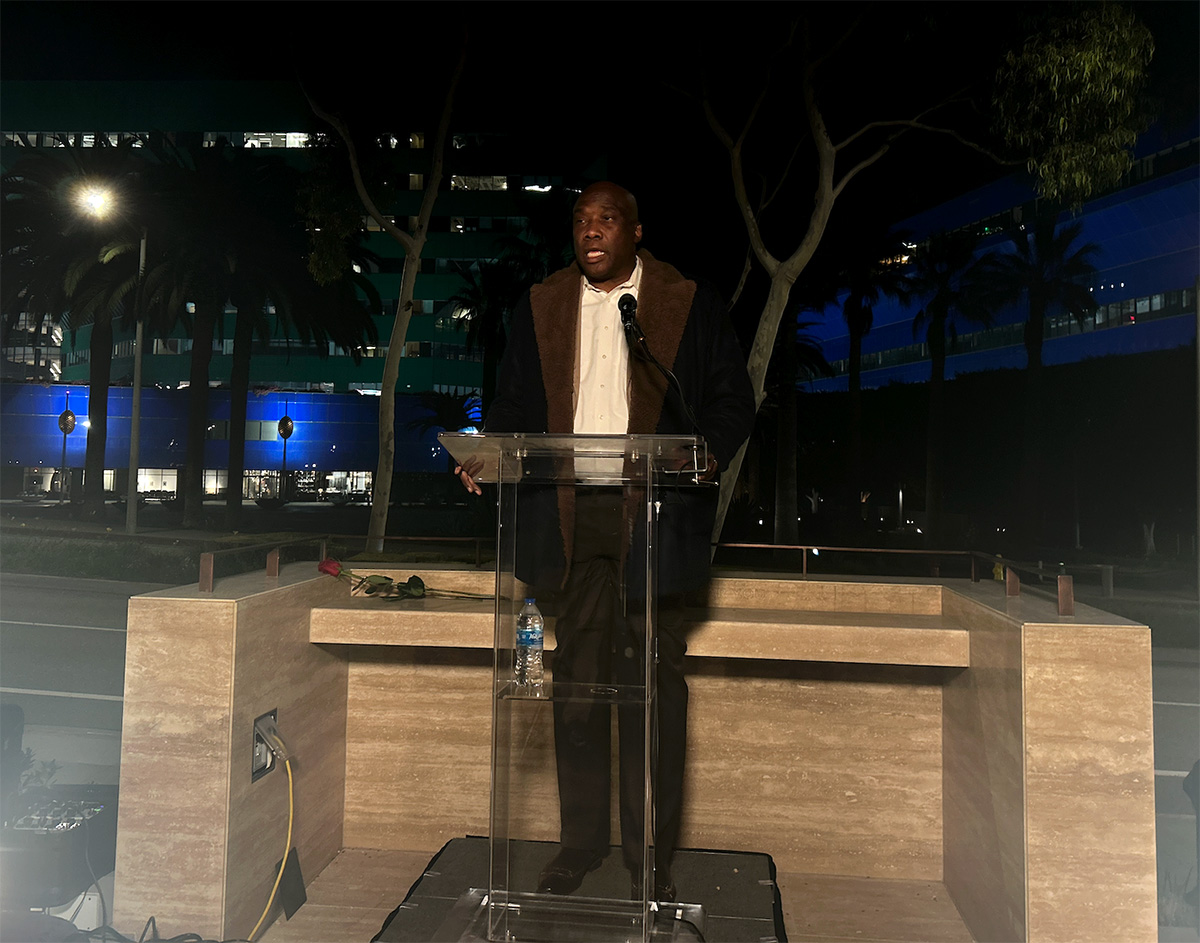
On Monday, the federal administration did not honor World AIDS Day, for the first time since the international awareness day was created in 1988. In addition to significant funding cuts to organizations focusing on HIV preventative treatment and care, the government’s halting of this commemoration perpetuates a dismissive system of inaction against LGBTQ+ people.
And yet, over 50 community members filled the empty spaces of West Hollywood’s AIDS monument yesterday evening, waiting in the night chill as city officials delivered impassioned statements and writers from APLA Health read personal pieces that centered a grief and love for those lost to the epidemic.
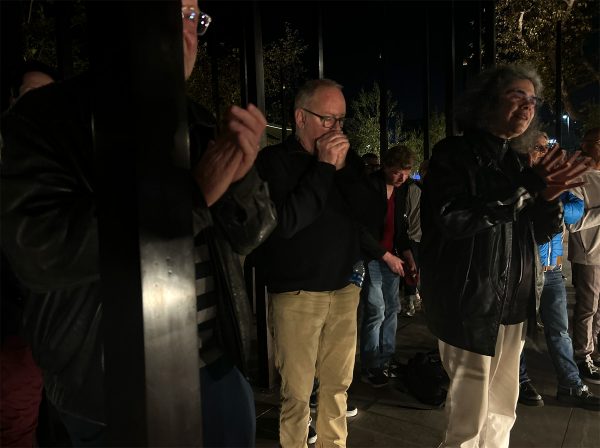
Before the readings began last night, West Hollywood vice mayor John Heilman asked for residents to join him in a righteous rage against administrative apathy. “I want to ask us all to reflect for just a moment about all of the people we lost…I want us to reflect and get angry,” said Heilman. “We have a fucking president who won’t even recognize World AIDS Day.”
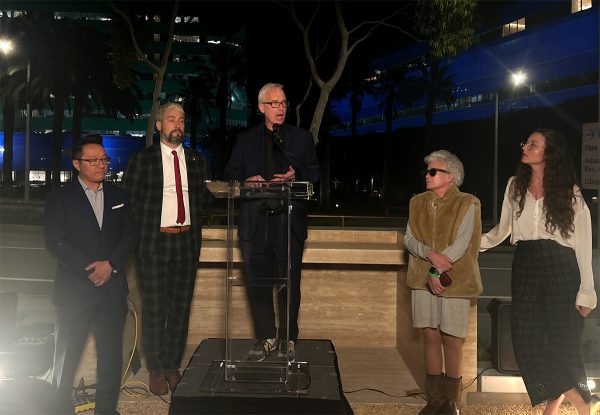
Irwin Rappaport, board chair for STORIES: the AIDS monument, echoed this immense disappointment. “Many of us here tonight lived through the 1980s, so we know what that’s like,” Rappaport said. “We also know that because of that neglect, because of that lack of caring from the federal government, we have to care for one another — and we know how to do that. When we don’t have recognition from others, we know how important it is to preserve our own history, to tell our own stories.”
Through heavy silence, five writers from APLA Health’s writers group stood tall before a podium and shared intimate writings they created about the epidemic and its personal impact on them. The collective was established in 1989 to provide an inclusive, expressive space for HIV-positive writers and allies to work on their writing and learn how to share their stories.
Writer Brian Sonia Wallace, who served as West Hollywood’s poet laureate from 2020 to 2023, has been working with the writers group for the last four years to help them hone and refine their narrative voices as they share their heaviest grief and the depths of their love for the people they lost to HIV and AIDS.
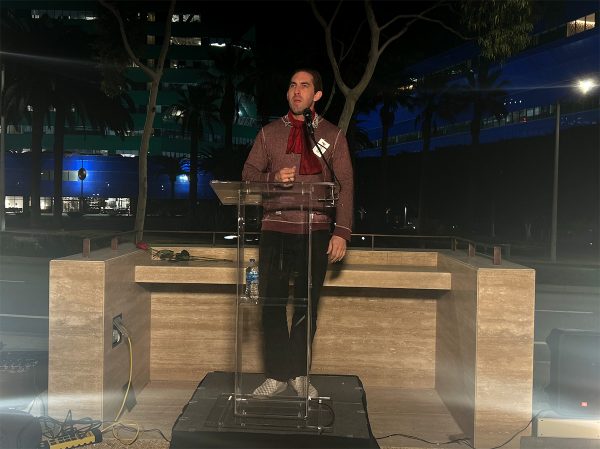
Hank Henderson, one of these writers, read from a diary entry from November 29, 1991. His voice, clear and strong, wavered as he shared about the death of his dear friend Richard. In a piece filled with lush, rich detail, painted clearly with a strong and loving voice, Henderson recounted a memory with Richard during the latter’s last years.
“The Santa Barbara sky is clear blue forever today…Yesterday came and went like a half-remembered dream between snooze alarms,” Henderson recited. “Last year, we walked to the beach. We spent hours there, played frisbee ourselves, brought the dog. Richard even yelled out 30-minute tanning turnover alarms. Yesterday, he took tiny, labored steps back to the car, used my shoulder to keep himself from falling over. Nobody said anything. We just pretend it’s normal.”
Another writer, Austin Nation, shared the story of being told he was HIV-positive at 26 years old. As a young nurse, he remembered the shock of seeing “young, beautiful men” arriving at the hospital covered in “purple, blotchy sores.” When he received his own test results, a paralyzing terror washed over his body. An incredulity followed the fear: why was this happening to him? “I got this thing for what?” Nation spoke. ”For having fun? For making love? And now it’s gonna cost me my life?”
But as he stood before the crowd, now 63 years old, he was met with applause and joy as he stated and repeated: “I’m still here. I’m still here.” The writers, in their grief and loss, have come to a place where they are able to share these stories, empowered and held. “In a world that writes off people with stories like mine,” Nation said. “It’s a hell of a good day to be alive.”
Kristie Song is a California Local News Fellow placed with the Los Angeles Blade. The California Local News Fellowship is a state-funded initiative to support and strengthen local news reporting. Learn more about it at fellowships.journalism.berkeley.edu/cafellows.
West Hollywood
West Hollywood kicks off community-focused programming for World AIDS Day
Since 1988, queer communities have come together on Dec. 1st to honor siblings and allies lost to the AIDS epidemic.
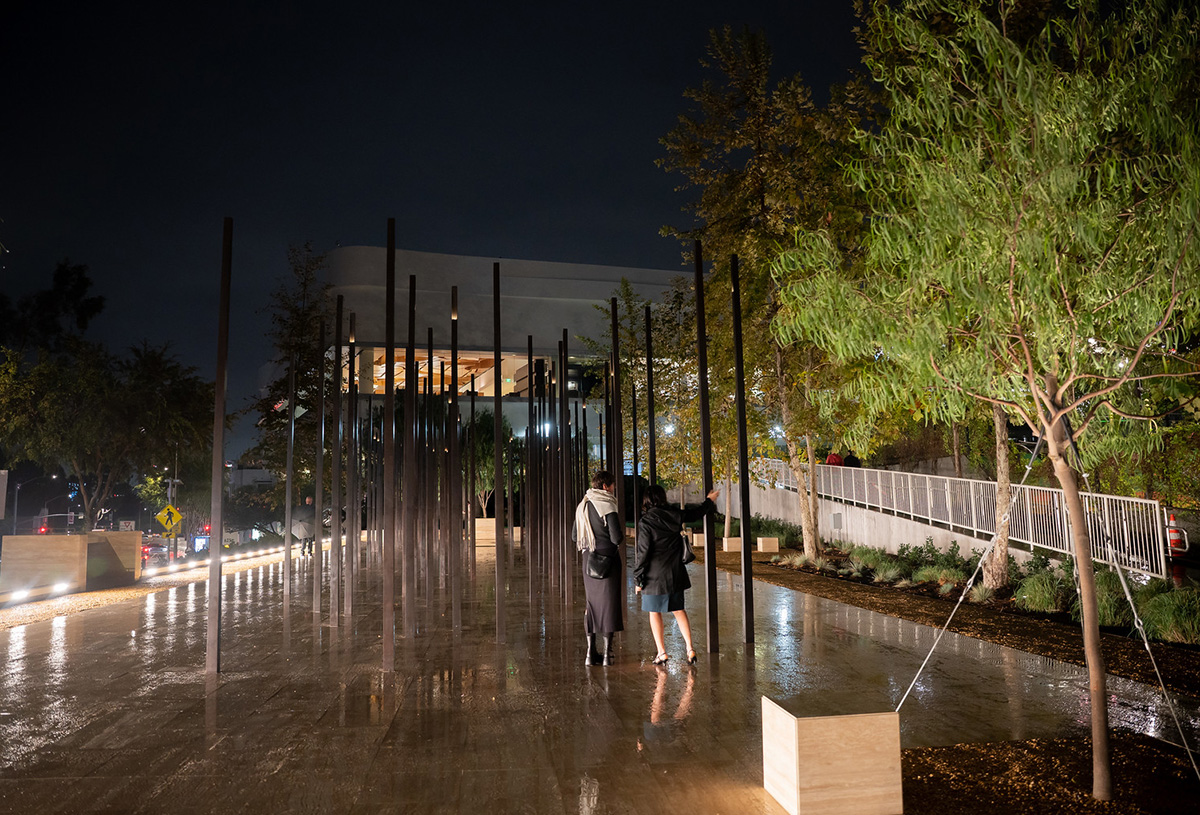
Since 1988, LGBTQ+ communities have come together on Dec. 1st to commemorate queer siblings and allies lost to the AIDS epidemic. This year’s World AIDS Day follows the theme “Overcoming disruption, transforming the AIDS response” and highlights the substantial funding cuts to research, health services, and community initiatives that have prioritized the safety of people with HIV and AIDS. The theme challenges people to think about “radical” ways to organize together and ensure that those who are impacted are able to access the care, treatment, and awareness that they need.
Beginning today, the City of West Hollywood is kicking off programming to recognize the historical transformation that local queer communities experienced during the AIDS epidemic. A panel from the AIDS Memorial Quilt will be available for viewing at the City’s Council Chambers at 625 N. San Vicente Boulevard through Monday, Dec. 15th.
Known as the largest community arts project in history, the Quilt is a powerful memorialization of loved ones who died during the epidemic. Each panel of the Quilt contains a story of remembrance, immortalizing a life cut short during the crisis. The project currently contains over 50,000 panels dedicated to over 110,000 people, all woven together in a 54-ton tapestry piece.
If you’re visiting the panel today, there will be an additional gathering opportunity tonight at the West Hollywood Park for STORIES: the AIDS Monument. From 5:30 to 8:30 p.m., members from the HIV-positive writers collective APLA Health Writers Group will present intimate readings that reflect on their experiences. Community members will be allowed time to wander through the monument and also preview the new Herb Ritts: Allies & Icons exhibition at ONE Gallery after the program. The art show includes striking black and white portraits of activists who stood in alliance with those most impacted during the AIDS epidemic.
Additionally, fresh flowers will be placed on the bronze plaques that line the City’s AIDS Memorial Walk. During the AIDS epidemic, West Hollywood was at the center of a rampant grief and loss that juxtaposed vibrant programming and efforts that boosted healing and fought against stigma and violence. It continues to be a vibrant space that houses various organizations and memorial spots that continue to uphold the revolutionary history and advocacy work that has continued since the epidemic’s beginnings.
Today, West Hollywood is in the process of executing its HIV Zero Strategic Plan, an initiative that began in 2015. Its goals include: expanding healthcare access for people living with HIV and AIDS, reducing the rate of infections, lessening health disparities and inequities for those impacted, and slowing the disease’s progress from advancing to AIDS.
According to West Hollywood mayor Chelsea Byers at a recent Cityhood event, the initiative carries forth the City’s “bold vision” and commitment to ensuring marginalized community members living with HIV do not face the life-threatening discrimination and health barriers that their elders experienced.
To learn more about the City’s programming, read here.
Kristie Song is a California Local News Fellow placed with the Los Angeles Blade. The California Local News Fellowship is a state-funded initiative to support and strengthen local news reporting. Learn more about it at fellowships.journalism.berkeley.edu/cafellows.
West Hollywood
Today, West Hollywood celebrates 41 years of queer cityhood
WeHo’s city officials are trying to preserve the fight for queer safety and rights that began decades before.
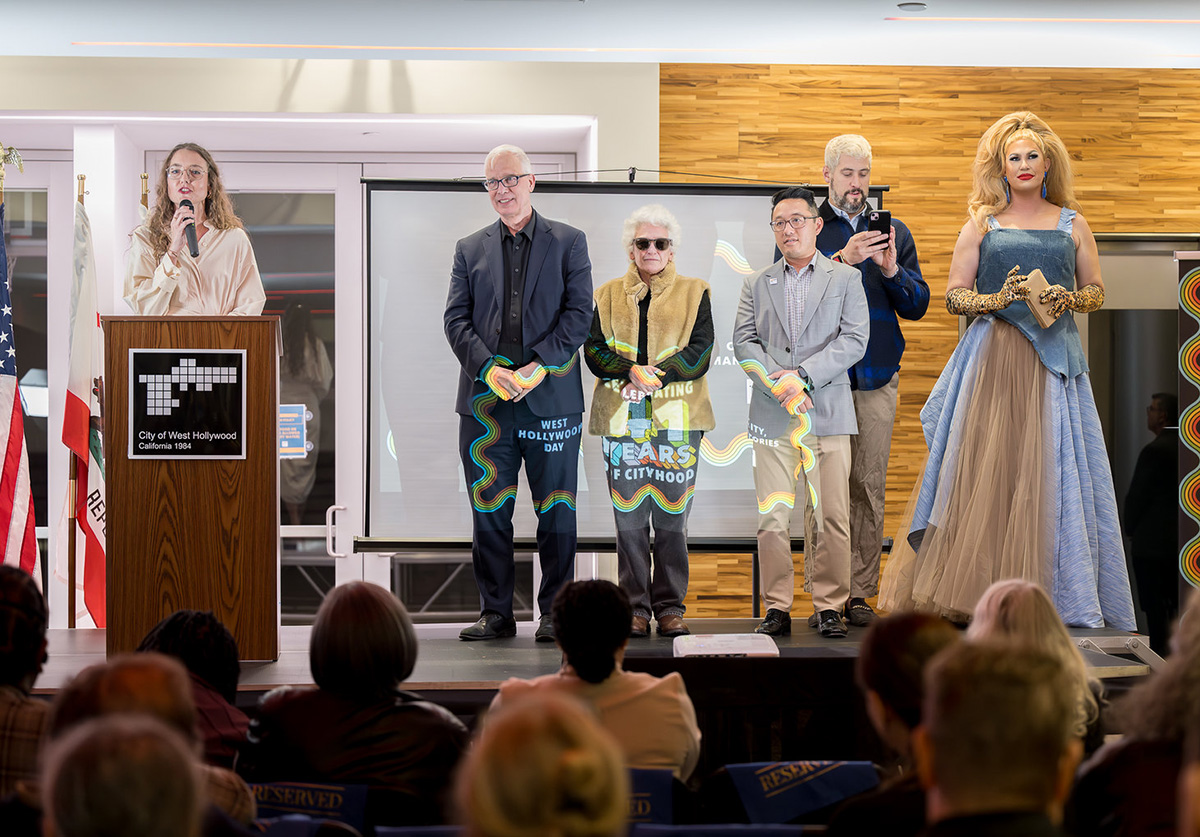
On Nov. 29th, 1984, West Hollywood was incorporated as an independent City, making its sovereignty official and solidifying it further as a sanctuary for LGBTQ+ community members, their stories, and their freedoms. Inspired by other prominent gay neighborhoods like New York’s West Village and San Francisco’s Castro District, West Hollywood was established by local queer advocates and residents. Their first city council was made up of a majority gay governing body — the first in the world, according to the West Hollywood History Center.
This political legacy, and the city’s vibrant and proudly queer history, continues to be preserved. On Monday’s celebratory event, West Hollywood mayor Chelsea Byers announced that the City’s current council “continues to be a majority-LGBTQ+ body,” holding tightly onto a “spirit” that reflects, prioritizes, and fights for Los Angeles’ queer community.
West Hollywood has been through various transformations, cocooning and revitalizing itself through the country’s evolving political and cultural upheavals. It has long been home to a ravishing nightlife that celebrates LGBTQ+ expression, and was a focal point for queer-led liberation and activism in the late 1960s and early 1970s. Trailblazers like Morris Kight led the first gay pride march through West Hollywood’s streets in 1970 and opened the Los Angeles LGBT Center to nourish the City’s robust and blossoming queer communities.
Today, West Hollywood continues to be the place where queer organizers and residents plant roots. Earlier this month, STORIES: the AIDS monument opened up in the City’s park after over a decade of work, shining a light on the legacies of gay activists, artists, historians, and community members who fought to survive as anti-gay stigma led to the erasure of their rights and lives.
As waves of anti-LGBTQ+ hate and violence continue to surge through the country, West Hollywood elected officials aim to continue doing the critical work that began decades before them: the work that protects the ability of queer residents to advocate for themselves, to live with protections and dignity, and to relish in joy. Mayor Byers is inspired by the resilience of the community members who stood together to establish this independent City in 1984. “The people who lived here…wanted a city with strong protections for renters, with progressive policies, and with a local government that would actually reflect and protect the people who call this place home,” said Byers, at the Nov. 24th celebration.
Over 40 years later, these needs have not changed. The way forward? Remembering and fighting for that initial promise and hope. “We are a chorus. We are a tapestry,” said Byers. “We are the product of thousands of people who, for more than four decades, have dared to say: We can build something better here.”
Kristie Song is a California Local News Fellow placed with the Los Angeles Blade. The California Local News Fellowship is a state-funded initiative to support and strengthen local news reporting. Learn more about it at fellowships.journalism.berkeley.edu/cafellows.
West Hollywood
From nickname to reality, the Rainbow District is made official by the City of West Hollywood
The mile along Santa Monica Boulevard from N. Doheny Drive to N. La Cienega Boulevard welcomes residents and visitors to come as they are
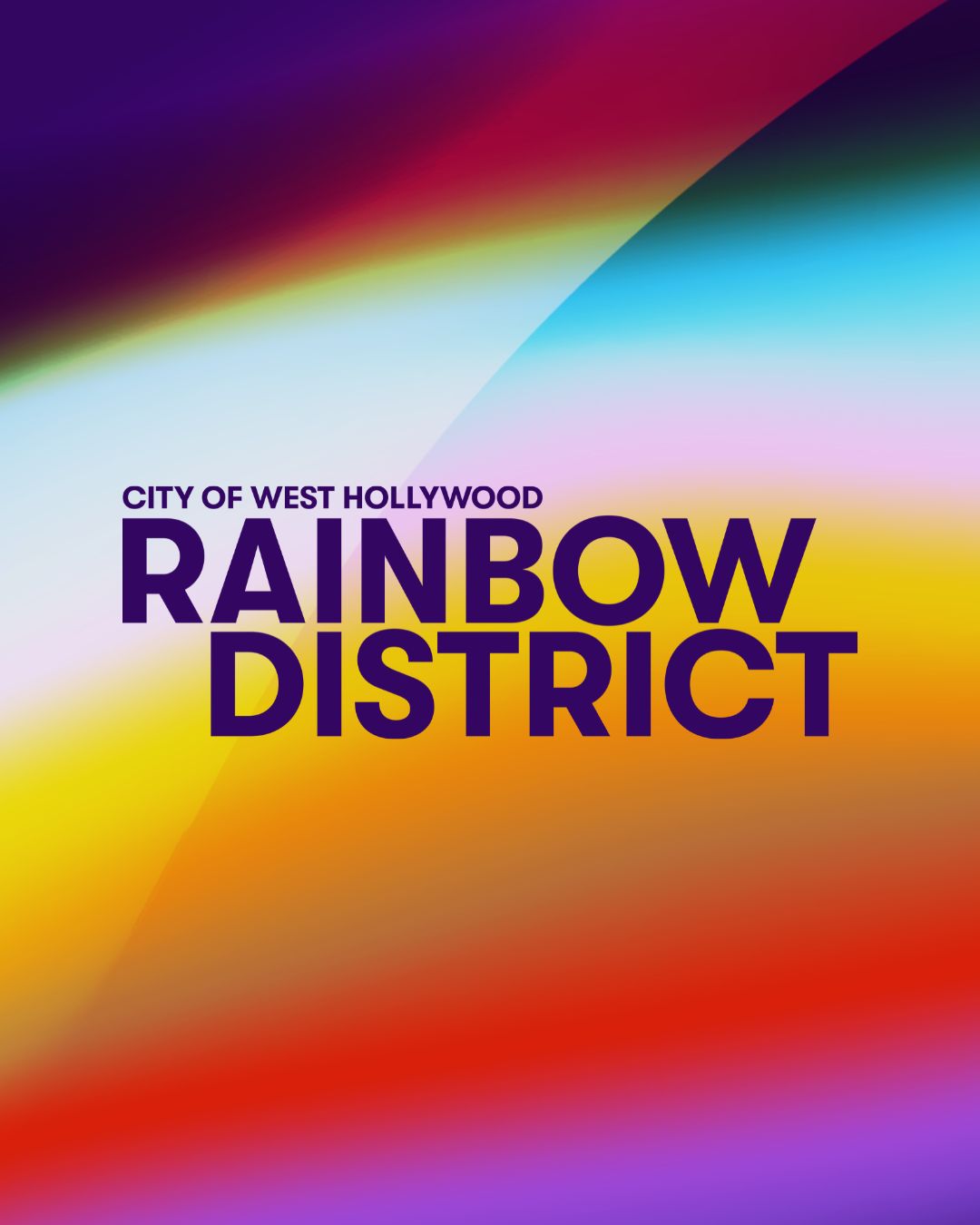
Even in today’s political climate, we will not be hidden.
The vibrant stretch on Santa Monica Blvd of over 50 local businesses, representing the full spectrum of LGBTQ+ expression, from N Doheny Dr to N La Cienega, has had the loving nickname of the Rainbow District for decades. Well, now it’s official. From nightlife to restaurants to community organizations, the City of West Hollywood has formally designated the space as such, honoring the neighborhood’s legacy as a safe haven for the queer community and beyond.
In addition to making the name official, the Rainbow District is being launched with a full range of social media, including Instagram, TikTok, and Facebook, keeping the residents and visitors updated on all upcoming events and happenings in the neighborhood.
Long known as a beacon of acceptance, inclusion, and visibility, where everyone is welcome, this iconic mile-long corridor is now formally recognized for what it has always been: a place where people from every walk of life can come together, be themselves, and celebrate the beauty of diversity.
City of West Hollywood Mayor Chelsea Lee Byers states, “For generations, the City of West Hollywood’s Rainbow District has been a place where LGBTQ+ people take their first steps into living openly, where the warm embrace of community is found at every turn, and where the joy of living out, loud, and proud fills the streets. The City’s official designation of the Rainbow District honors both the legacy and the future of this vibrant neighborhood, home to beloved entertainment venues, bars, and restaurants that have long served as cornerstones of LGBTQ+ life. Today, the Rainbow District is more alive than ever, and it will always stand as a beacon of hope, pride, and belonging and as a reminder that everyone deserves a place to celebrate joy, to be seen, and to be supported.”
The Rainbow District officially joins a nationwide list of iconic LGBTQ+ landmarks. West Hollywood will not be hidden amid political backlash and will continue to protect queer spaces, uplift queer voices, and foster a safe and joyful environment for all.
“This designation is not only a celebration, but it also serves as a promise,” said Visit West Hollywood President & CEO Tom Kiely. “A promise to keep LGBTQ+ spaces visible, valued, and vibrant for generations to come. As the Rainbow District continues to evolve, it will remain a place where locals and visitors alike can connect through culture, creativity, and community. The City’s formal designation affirms its significance and highlights The Rainbow District as the ultimate playground for travelers seeking a unique, inclusive, and authentic experience.”
The Rainbow District will be home to upcoming community events that include:
- Winter Market & Ice Skating Rink — December 2025
- Go-Go Dancer Appreciation Day — March 2026
- Harvey Milk Day — May 22, 2026
- WeHo Pride Weekend & the OUTLOUD Music Festival at WeHo Pride — June 5–7, 2026
Follow the Rainbow District on socials to discover local happenings, support small businesses, and be part of a neighborhood that celebrates every person for exactly who they are.
Instagram: @RainbowDistrictWeHo TikTok: @RainbowDistrictWeHo
Facebook: facebook.com/rainbowdistrictweho More Info: visitwesthollywood.com/rainbowdistrict
West Hollywood
West Hollywood’s AIDS Monument preserves the pain and power of people lost to the crisis
STORIES: The AIDS Monument is now available to view at West Hollywood Park, 15 years after its conception.
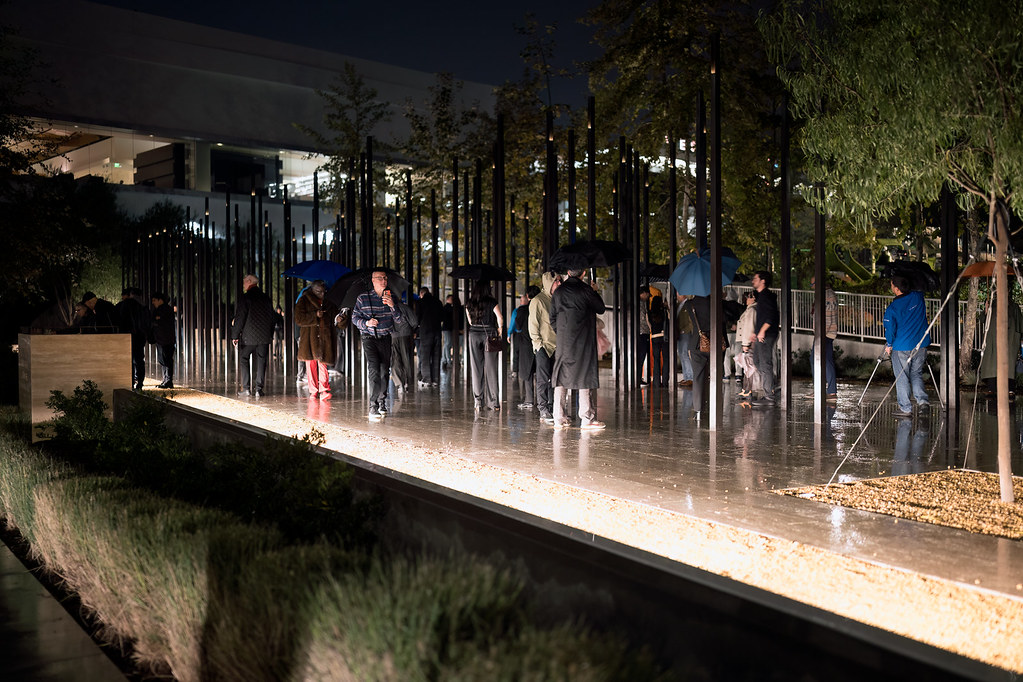
It was 1985, at the height of the AIDS crisis, when Irwin Rappaport came out as gay. As he came to terms with his identity, he witnessed people around him grow weaker: their faces becoming gaunt, painful lesions developing on their bodies. Five years later, he began volunteering as a young lawyer at the Whitman-Walker Clinic, a community health hotspot in Washington, D.C. that created the first AIDS hotline in the city, opened homes for patients with AIDS, and distributed materials that promoted safe sex.
The work being done at the clinic was instrumental, essential, and deeply painful. “When you see that sickness and experience that death among your friends and people you know, and when you’re writing wills for people who are much too young in ordinary times — it has an impact,” Rappaport told the Blade. “And even though in 1996 we saw life-saving medications come around, you never forget the sense of fear that permeates your life. The sense of loss.”
Determined to honor and share the legacies of people who died from AIDS, Rappaport joined the Foundation for the AIDS Monument (FAM) board to work towards the organization’s goal of creating a physical monument dedicated to memorializing these histories. FAM treasurer Craig Dougherty first conceived of this project in 2010 and, after 15 years, STORIES: The AIDS Monument is now available to the public for viewing.
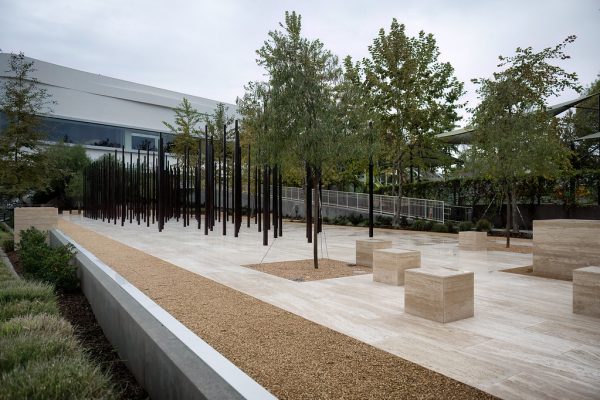
Created in collaboration with the City of West Hollywood, STORIES: The AIDS Monument is composed of 147 vertical bronze pillars known as “traces.” Designed by artist Daniel Tobin, 30 of these traces are engraved with words like: activism, isolation, compassion, and loss, which correlate to the over 125 audio stories collected and archived on the foundation’s website. This multimodal storytelling allows people who come across the monument to engage more intimately with the people represented by these physical pillars.
At nighttime, lights transform the monument into a candlelight vigil, providing a warm glow to a wanderer’s journey through the structure.
When people were able to walk around the traces at Sunday’s grand opening ceremony at the Pacific Design Center, the last remnants of the weekend’s rainstorm created a kind of “spiritual” and reverent atmosphere for those gathering, according to Rappaport. “I think there’s a certain peacefulness and serenity about the design, an opportunity for reflection,” he continued. “For some, it may bring back incredibly painful memories. It might bring back wonderful times with friends who are no longer here. It might remind them of their own caregiving or activism, or the sense of community that they felt in striving with others to get more attention to the disease.”
Now that the monument has been built, FAM has passed the mantle of management and programming to One Institute, a nonprofit that engages community members with queer history through panels, screenings, and other educational initiatives. One Institute plans to host monthly docent tours, art installations, and other special events during various LGBTQ+ national awareness days, including the upcoming World AIDS Day in December.
Rappaport also hopes to do outreach with local schools, so that young students are able to engage with the monument, learn about the people who were affected by the AIDS crisis, and interact with the ripples of transformation that this time period sparked in politics, research, the arts, and within society. “For younger people, I think [this is] an invitation for them to understand how they can organize about issues that they care about,” Rappaport said. “[So] they can see what the HIV and AIDS community did as a model for what they can do to organize and change the world, change culture, change law, change politics, change whatever they think needs to be changed. Because we had no other choice, right?”
West Hollywood
West Hollywood invests $1 million to build LGBTQ+ Olympic hospitality house
Pride House LA/WeHo will be an interactive space for queer athletes and allies to celebrate the 2028 Summer Games together.
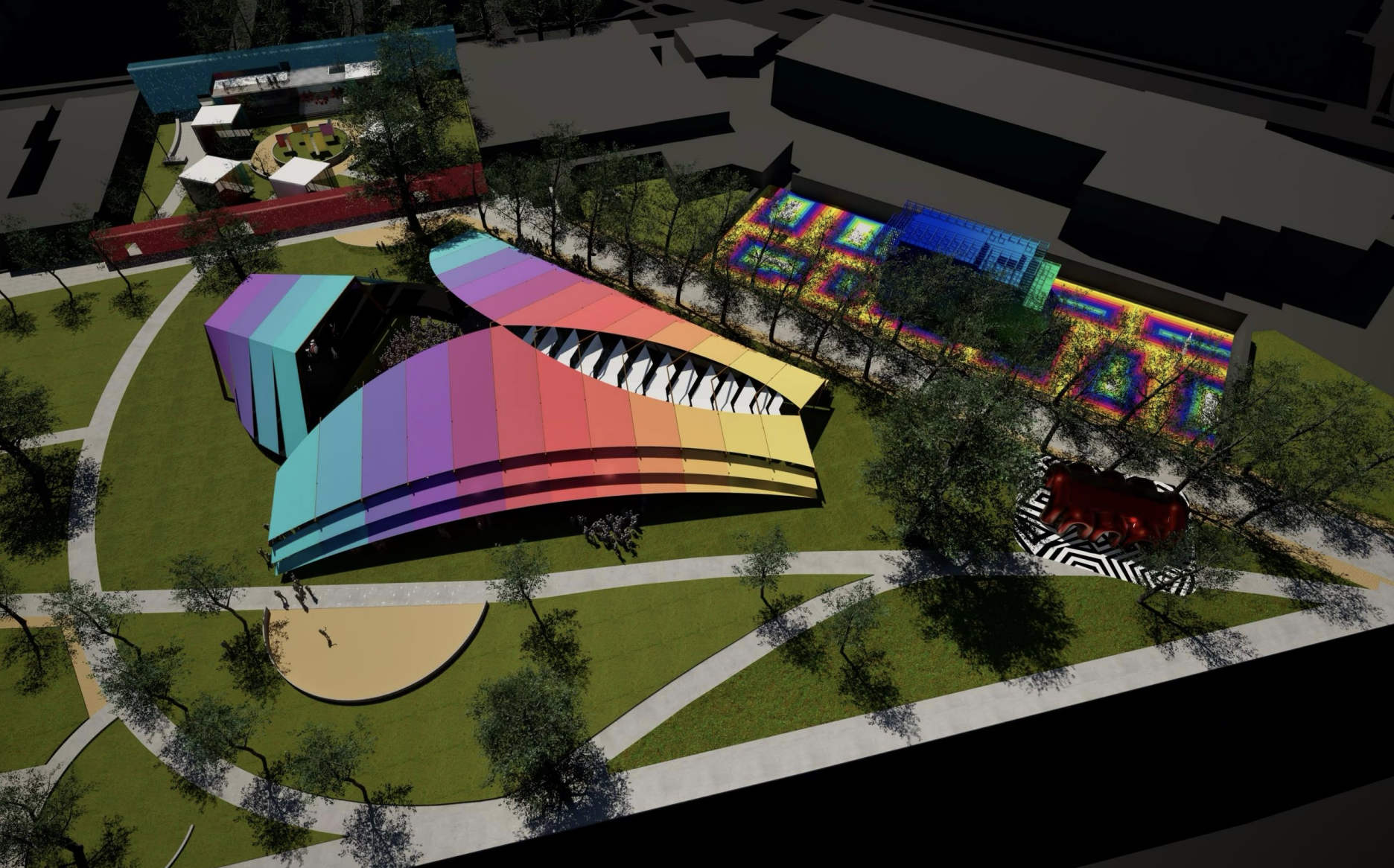
The first-ever Olympic hospitality house began with humble roots in 1992: a tent pitched on the Port of Barcelona for athletes to gather with their families. Since then, they transformed into fixtures of several major sporting events, with hopes of fostering belonging and safety for athletes of various cultural backgrounds.
It wasn’t until 2010 that the first LGBTQ+ hospitality house, the Pride House, appeared during the Winter Olympics in Vancouver. Over the years, its existence and visibility have faced barriers. During the 2014 Sochi Winter Olympic Games in Russia, Pride House International was denied from organizing its safe hub. The rejection was a blow to the visibility and safety that the organization was trying to promote and create for queer athletes. But this didn’t go unnoticed. International fans demonstrated quiet resistance, hosting remote Pride Houses in support of the Olympians who were barred from openly communing and celebrating together.
As Los Angeles prepares to host the Summer Olympics in July 2028, Pride House is coming back stronger than ever. In early October, the West Hollywood city council approved an agreement that would allocate $1 million to sponsor Pride House LA/WeHo as they prepare to build a temporary structure at West Hollywood Park for the 2028 Games. For 17 days, vibrant LGBTQ+ sports programming will fill the park’s grassy knolls.
Pride House LA/WeHo CEO Michael Ferrera detailed at a Nov. 1st Out Athlete Fund fundraising event that the team plans to build a concert stage to seat over 6,000 people. There will also be a museum that will take viewers through 100 years of queer Olympics history, viewing areas for people to watch the games, and a private athlete village for queer Olympians. “The dream of that is — imagine you’re an athlete from a country where you can’t be out,” said Ferrera. “You come here, and you can be safe and sound.”
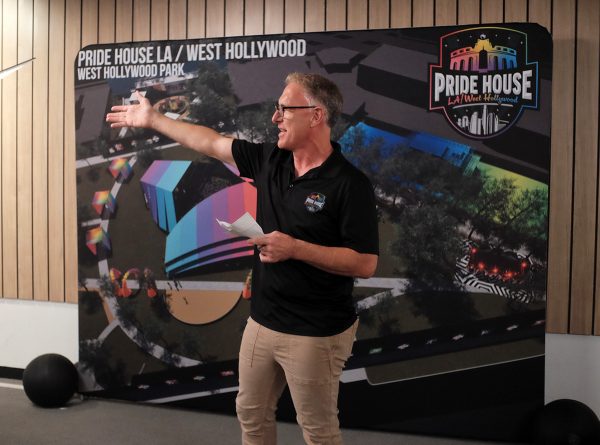
As outlined in the city council agreement and stated by Ferrera, most of the programming will be free and open to the public, and in the heart of a neighborhood that many of the county’s queer residents recognize as their safe haven. “We’re centering this important event in West Hollywood Park where our community has come together for decades in celebration, in protest, to support each other and to live our lives,” Pride House LA/WeHo CEO Michael Ferrera wrote to the Blade. “There is no place that is more representative of inclusion and safe spaces.”
The City of West Hollywood is promoting this inclusion further by asking for local community members to voice their perspectives on the formation of Pride House LA/WeHo at West Hollywood Park. On Monday, a community conversation will take place at Plummer Park to encourage residents to help shape the cultural programming that will take place in the summer of 2028. Another conversation will take place on Nov. 21st at the City’s 40th anniversary of Cityhood event.
“We couldn’t do this without the generosity and partnership of the city of West Hollywood,” Pride House LA/WeHo marketing co-lead Haley Caruso wrote to the Blade. “We are so happy to help bring the Olympic spirit to West Hollywood while also providing the community a safe and entertaining venue to enjoy the Games.”
Head to PrideHouseLAWeho.org for more information
West Hollywood
Drag performers delight Carnaval crowds with demure and daring dances
The Halloween party is one of the most anticipated events for queer Angelenos.
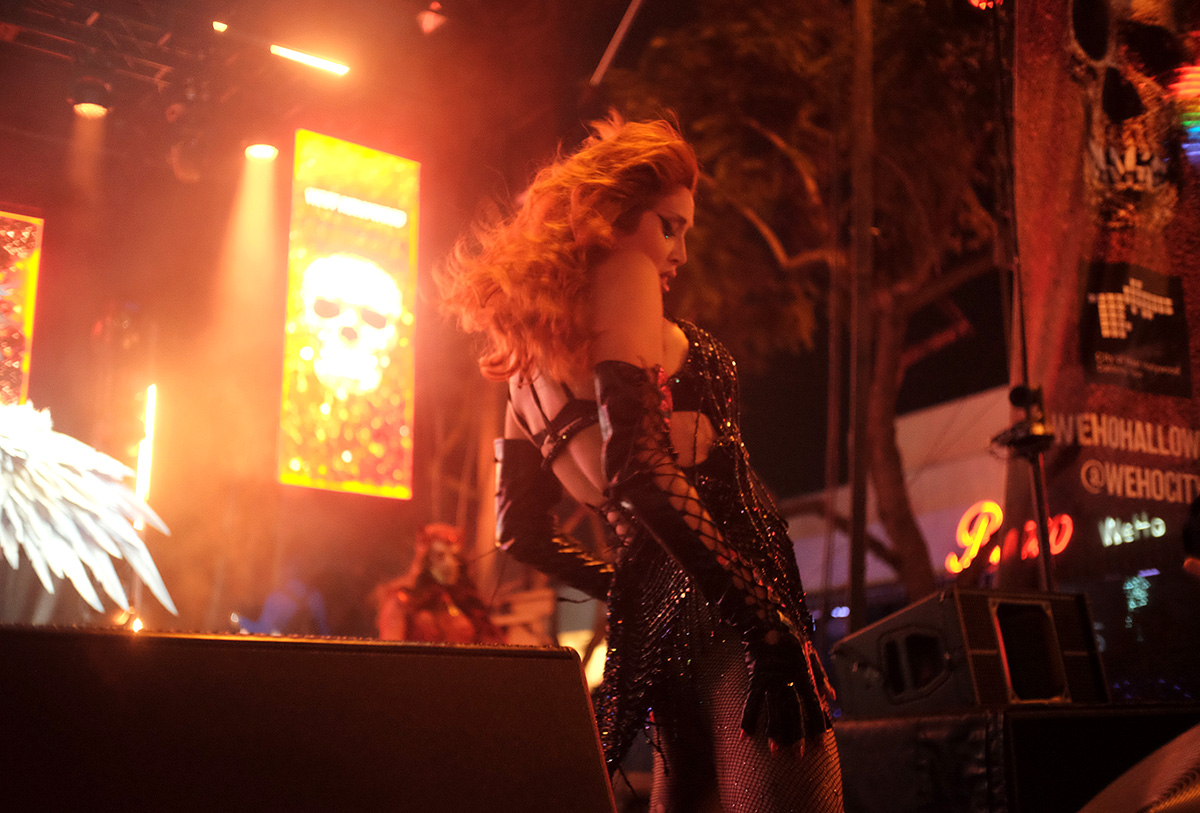
On Friday night, techno pop remixes surged through a tight block on Santa Monica Boulevard, where hundreds of eager partygoers danced near a pop-up stage. Bass-heavy grooves echoed across neighboring streets as Beetlejuices, angels, and vampires swayed and thumped to the beat.
Oct. 31 marked the arrival of West Hollywood’s annual Halloween Carnaval, one of the county’s citywide celebrations — and one of the most anticipated for queer Angelenos.
The first Halloween Carnaval was celebrated in 1987, and has since become one of the most awaited nights for local queer celebration. Drag performers donning elaborate costumes and glamorous makeup set the stage ablaze as they strutted, flipped their hair and danced to the cheers of a crowd that grew enormously as the night went on. The energy was infectious, and the Los Angeles Blade was on the scene to photograph some of these moments.
Image captures by Blade reporter Kristie Song.
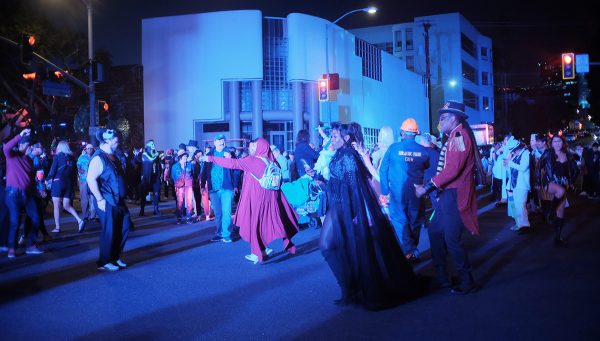
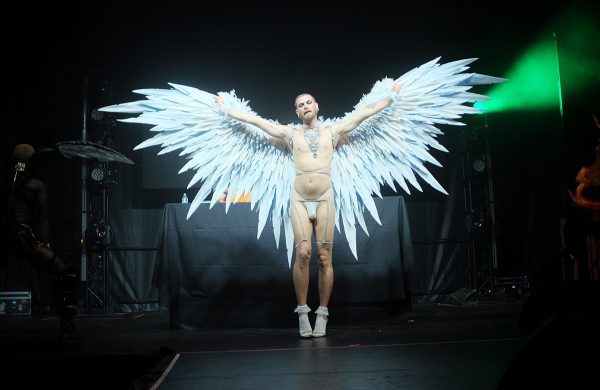
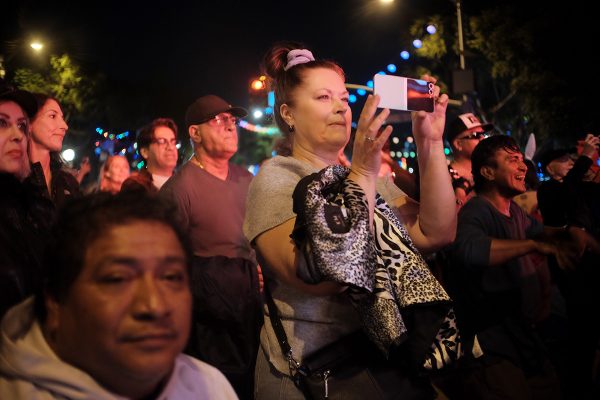
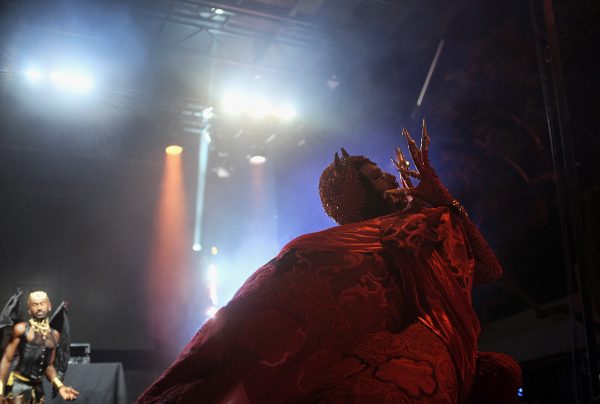
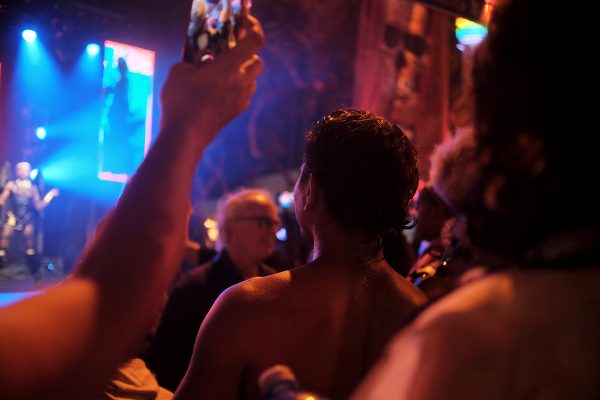
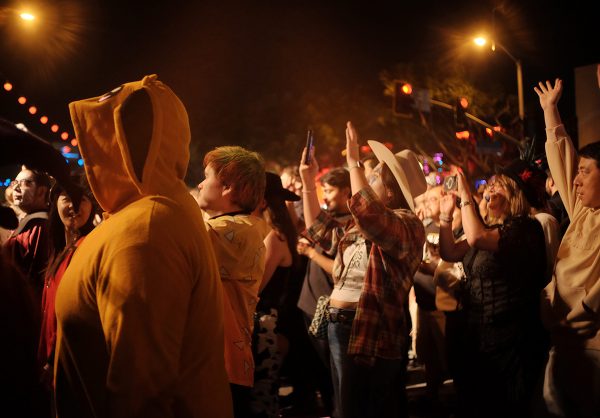
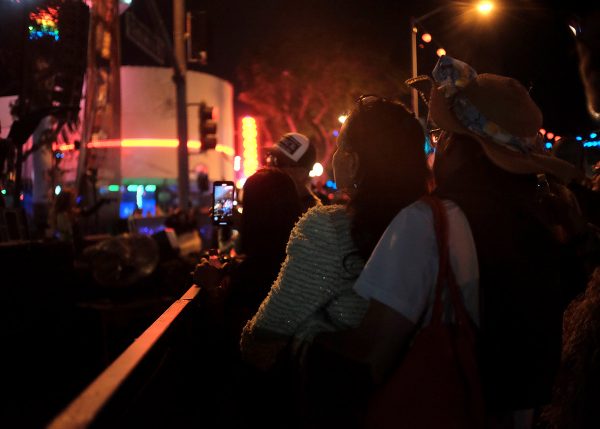
West Hollywood
West Hollywood installs new intersex pride flags on Intersex Awareness Day
On Sunday, city councilmembers gathered to raise two new pride flags to honor intersex community members
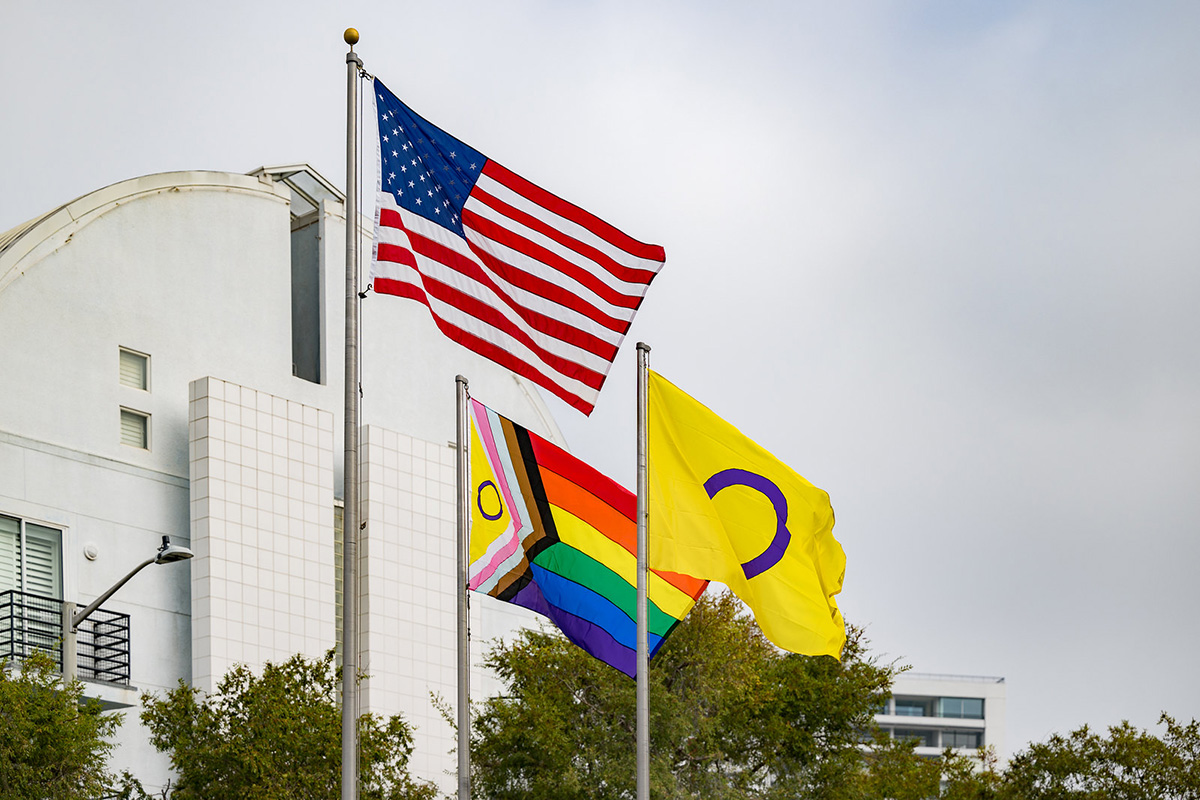
Early yesterday morning, on National Intersex Awareness Day, West Hollywood mayor Chelsea Byers, Vice Mayor John Heilman, as well as councilmembers Danny Hang and John M. Erickson gathered to install and raise two new intersex pride flags. They fly side by side with the American flag, upholding the City of West Hollywood’s vision of solidarity between national pride and LGBTQ+ visibility.
“We are facing unprecedented attacks on our community. It is important that we recognize the entirety of the LGBTQI+ community,” Vice Mayor John Heilman wrote to the Blade. “Intersex people have long been ignored and their issues disregarded. Raising the intersex flag also raises awareness about the challenges many intersex people face.”
Intersex people are born with naturally occurring variations in reproductive and sexual anatomy that don’t fit into binary “male” or “female” categorizations. As Planned Parenthood details, this can look like having both ovarian and testicular tissues or having combinations of chromosomes that aren’t “male” or “female,” just to name a few. According to the Human Rights Campaign Foundation, one of the biggest issues intersex people face is non-consensual surgeries performed when they are children. These operations are considered medically unnecessary and can leave lasting physical and psychological damage on intersex youth.
The fight for bodily autonomy and intersex visibility was the main reason behind the first action organized by intersex advocates and trans allies on Oct. 26th, 1996. Protestors stood outside the Boston Convention Centre, passed out leaflets, and spoke with clinicians, nurses, and other medical professionals attending the annual American Academy of Pediatrics conference.
One of the main leaders behind this movement was Morgan Holmes, an intersex woman who had experienced a violating medical procedure meant to “correct” her anatomy. In May of 1996, she presented testimony in a room adjacent to a symposium on genital surgery for intersex infants, a conference she and other members of her advocacy group had been rejected from.
“What I am saying is that my medical ‘care-givers’ failed to respect my autonomy or my intelligence when they assumed that because I was a child, they could do whatever they wanted as long as my father provided his consent,” Holmes said. “And when I began to balk, instead of questioning their own treatment of me, they blamed my body, and they cut it up.”
Today, intersex people and their stories are more broadly recognized, but still struggle to reach mainstream audiences when it comes to discussions around LGBTQ+ identity. West Hollywood city officials see this addition of intersex pride flags as a step forward. “Updating our city’s flags was my item because visibility matters,” councilmember John M. Erickson wrote to the Blade. “Intersex people have always been part of our story, and it’s time that their history, identity, and pride are recognized in the public spaces that belong to all of us.”
West Hollywood
Residents remain dubious as officials claim “no ICE involvement” at The Abbey
The Oct. 17th “undercover operation” was addressed at the latest city council meeting
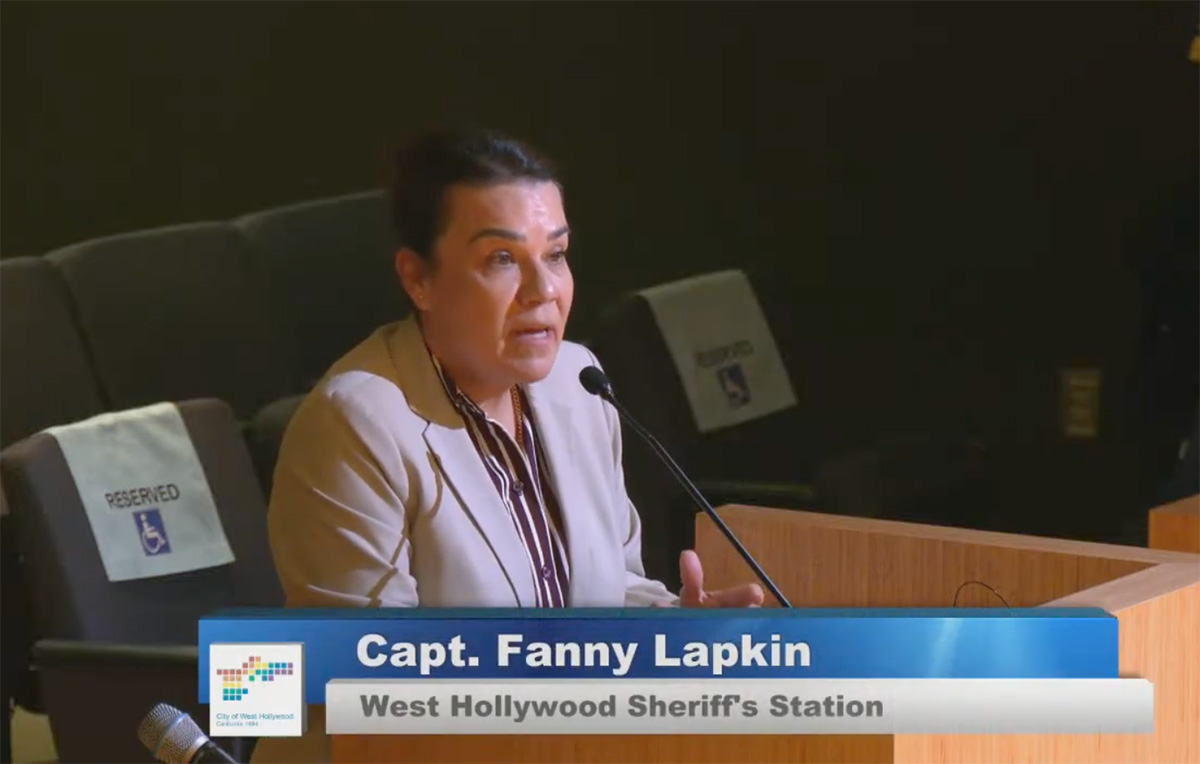
On Friday, Oct. 17th, West Hollywood gay bar The Abbey found itself in the center of a social media storm as clips were shared depicting the presumed presence of federal Immigration and Customs Enforcement (ICE) officers. In a video posted on Oct. 18th by Charles Hernandez, who often creates content around gay nightlife in Los Angeles, several people are seen standing in a line as they are apprehended and handcuffed by officers wearing sheriff’s vests and tees. Hernandez noted that, while dressed in varying attire with the word “sheriff” on it, none of the officers were willing to identify themselves or present their badges upon request.
Hernandez can be heard asking the officers about the cause for arrest, to which one responded: “I don’t have to tell you our cause.” The video creator also questioned another officer, who can be seen wearing a gaiter to cover his face. “Isn’t it illegal to wear a mask in California?” Hernandez asked. “He has COVID,” an officer replied. In September, Governor Newsom signed five bills that weakened federal agents’ abilities to access school sites and health facilities, and prohibited them from hiding their identities. More specifically, SB 627 requires all California law enforcement agencies to create written policies limiting their officers’ use of facial coverings by July 1, 2026.
As this video circulated around the web, the West Hollywood Sheriff’s Station released an online statement of their own, denying allegations that the officers present were federal immigration officers. The station also claimed that the night’s events were a result of an “undercover operation” that was conducted in response to reports made about pickpocketing and the transportation, use, and sale of illegal substances. “Several arrests were made,” the statement read. “ICE was not involved.”
Still, residents remained unconvinced, criticizing the station’s lack of transparency, careful conduct, and accountability. Over 50 people took to the comments of this statement to voice their discontent. “[It] was not that long ago when officers would raid LGBTQ spaces and arrest people simply for being there,” one comment read. “A raid such as this does not inspire feelings of safety for our community. Especially in times when people are being kidnapped off the street by masked federal agents. There simply must be a better response to pickpockets and “other criminal activity” than undercover raids by masked officers and transporting detainees in unmarked vehicles. DO BETTER.”
Two days later, at the West Hollywood city council meeting, West Hollywood Sheriff’s Station Captain Fanny Lapkin took to the podium to address some of these concerns. Echoing the station’s Instagram statement, Lapkin confirmed that the “pre-planned operation” was created in response to “concerns from our businesses and our community in regards to the pickpocketing, to the narcotics, and also to the illegal vending and some of the criminal activity during illegal vending.” Lapkin also confirmed that no federal agents were present, stating that everyone who took part in the operation was “sheriff’s department personnel.” And because the arrests were made as part of a planned operation, Lapkin further stated that warrants were not “necessary.”
The events were discussed with brevity at the meeting, but community ire has not been dispelled. Several people continue to question the ethics of this undercover operation: Why were the individuals being arrested not clearly told the reason for their detainment? Why were unmarked vehicles present? Why conduct the operation in this way, as Los Angeles neighborhoods continue to stay on high alert over immigration raids? These questions remain unanswered as more specifics about the operation have yet to be released.
-
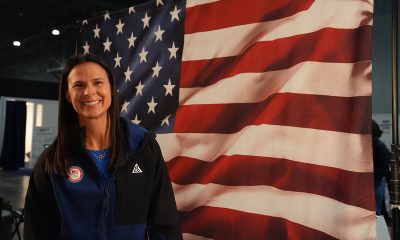
 Sports2 days ago
Sports2 days agoOut Athlete Fund is supporting 6 queer athletes on their way to the 2026 Winter Olympics
-

 Movies5 days ago
Movies5 days ago‘Becoming a Man in 127 EASY Steps’ changes the narrative when it comes to LGBTQ storytelling
-
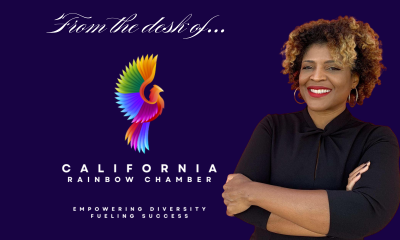
 Business5 days ago
Business5 days agoQueer business trends to watch in California for 2026
-
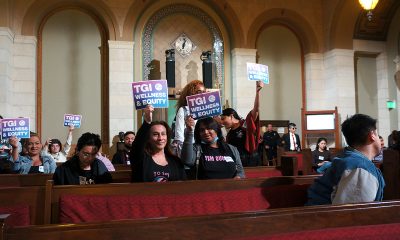
 Los Angeles2 days ago
Los Angeles2 days agoCommunity members urge city council to invest in trans lives
-

 a&e features3 days ago
a&e features3 days ago“I just kept showing up”: Broadway veteran Marc Shaiman reflects on musical success stories
-

 a&e features3 days ago
a&e features3 days agoAlexander Skarsgård describes ‘Pillion’ in 3 words: lube, sweat, leather
-
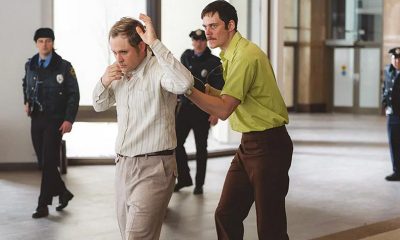
 Movies3 days ago
Movies3 days agoVan Sant returns with gripping ‘Dead Man’s Wire’
-
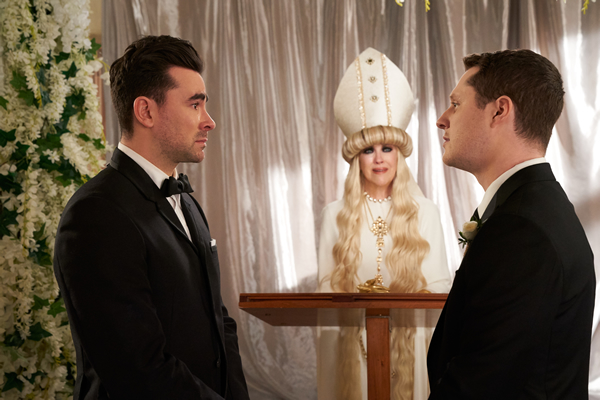
 Obituary1 day ago
Obituary1 day agoCatherine O’Hara, ‘Schitt’s Creek’ star and celebrated queer ally, dies at 71
-
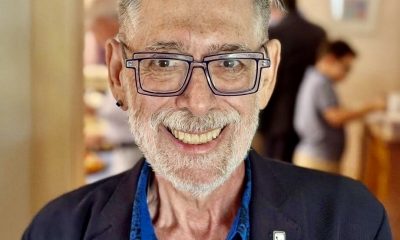
 Features11 hours ago
Features11 hours agoLGBTQ+ legal hero Jon Davidson hands civil rights torch to new generation
-
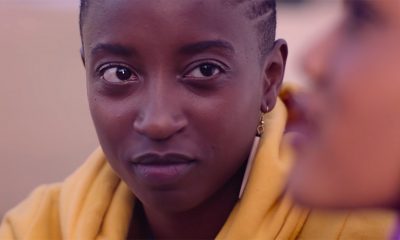
 Film12 hours ago
Film12 hours agoRevolutionary lesbian film “Rafiki” secures victory in fight against censorship in Kenya

